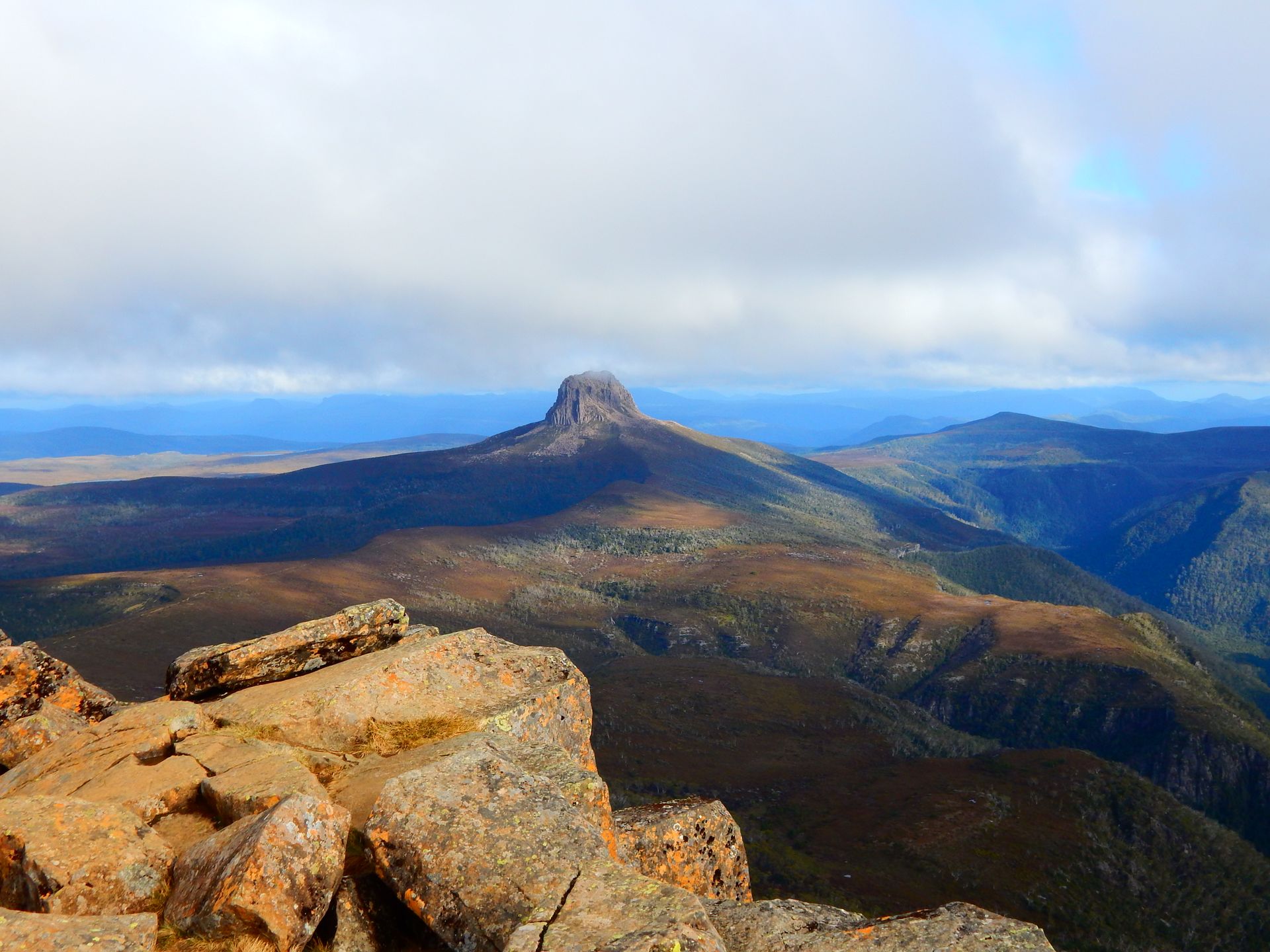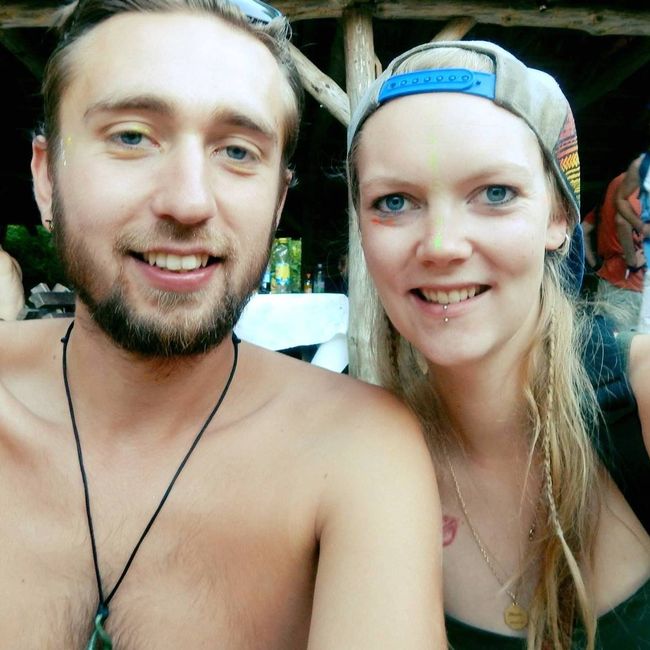Roadtrip for three
Udgivet: 22.09.2019
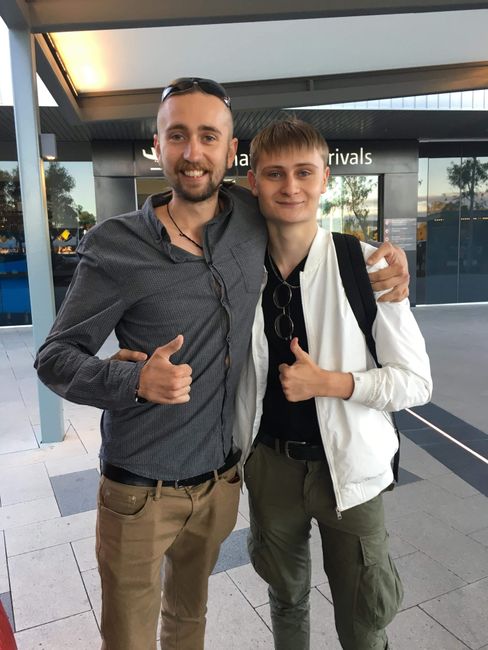
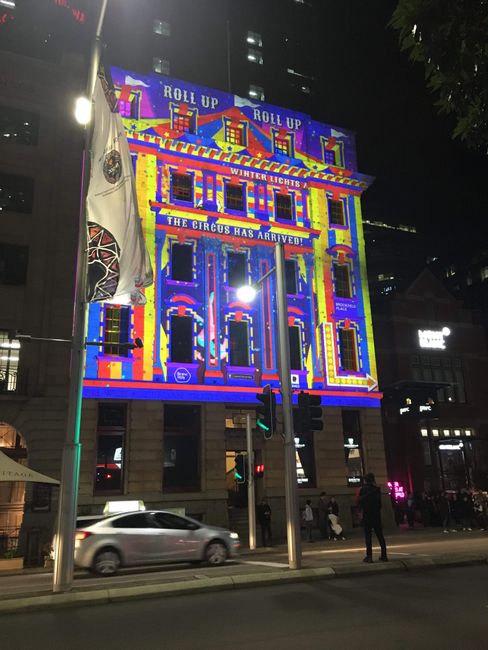
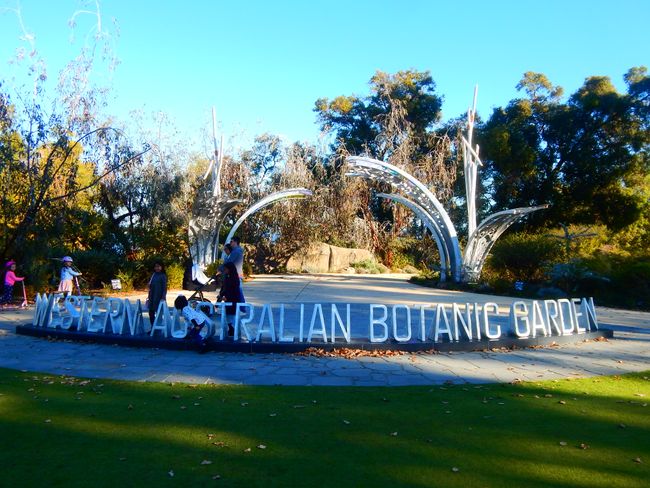
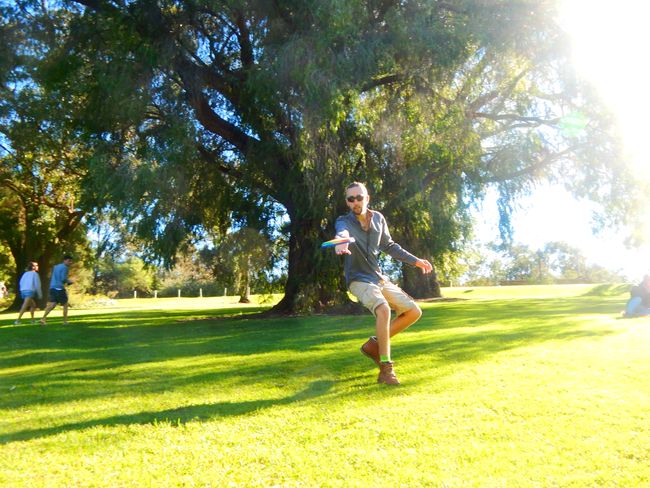
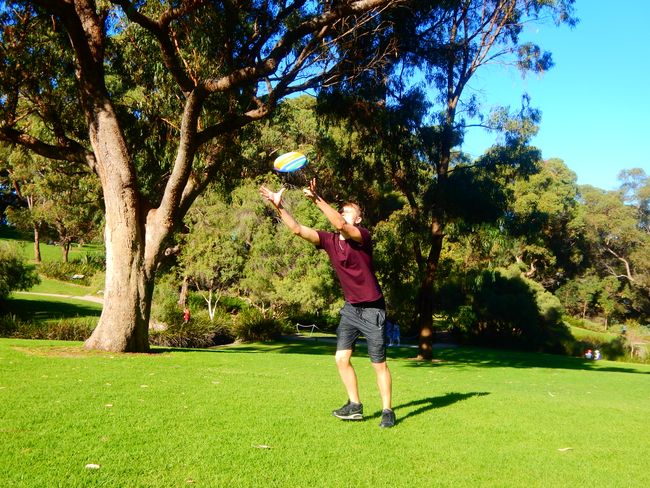
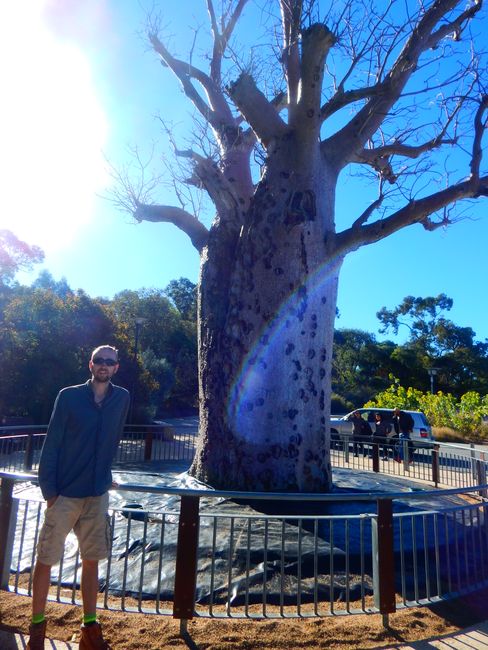

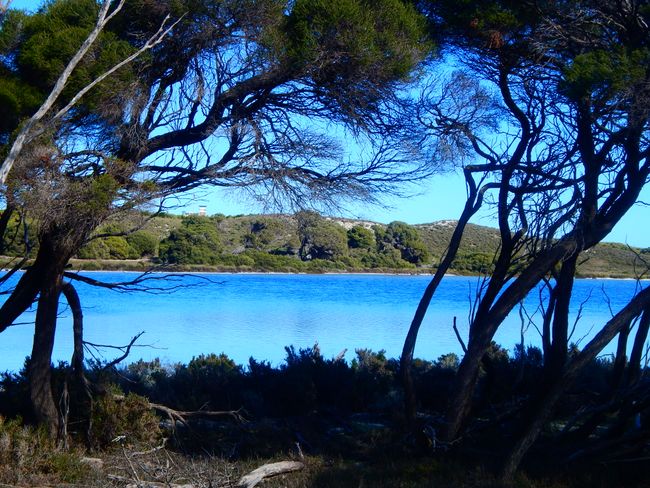
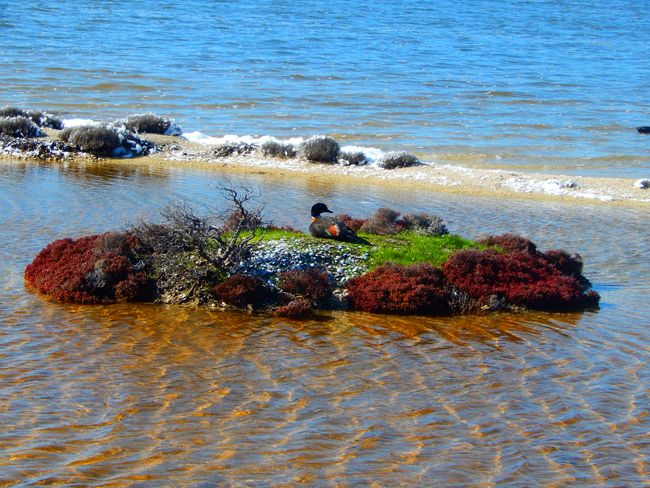
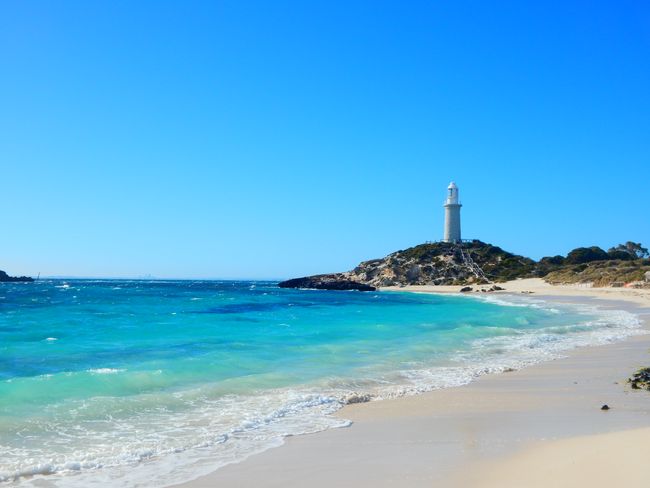
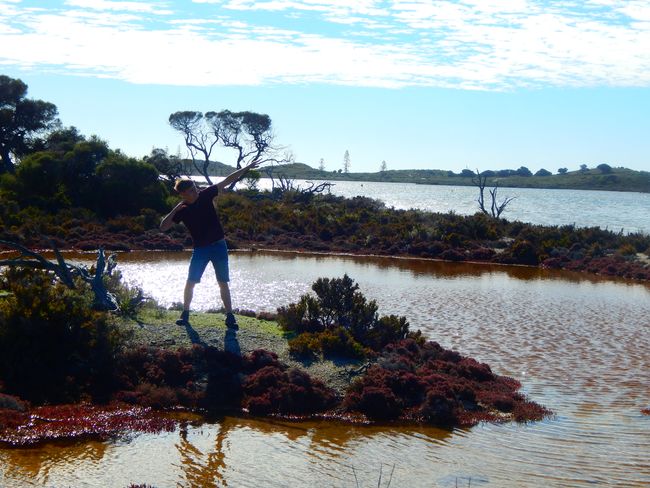
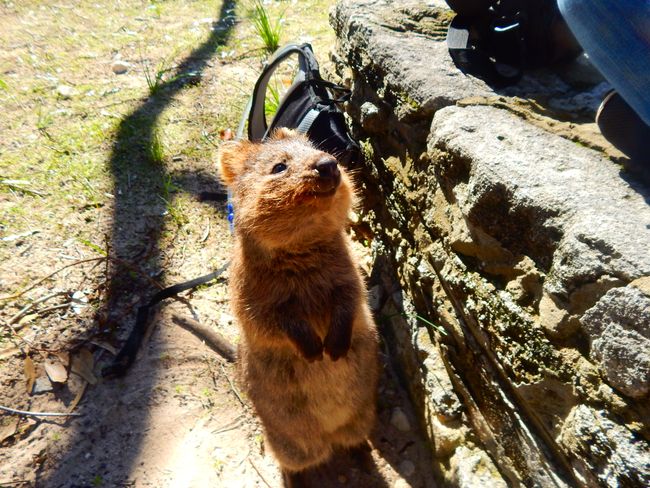
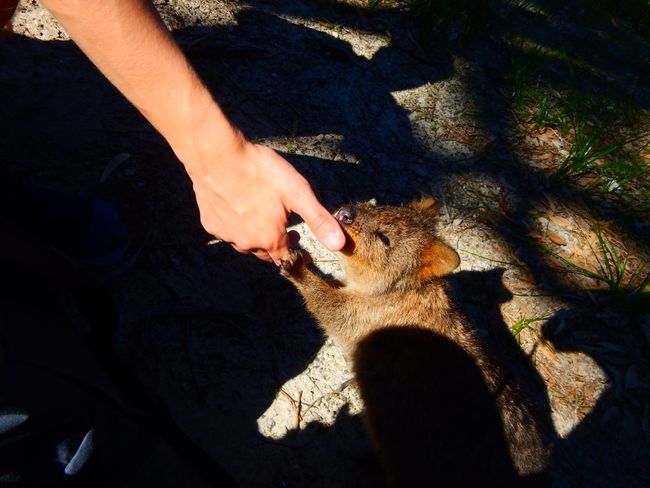
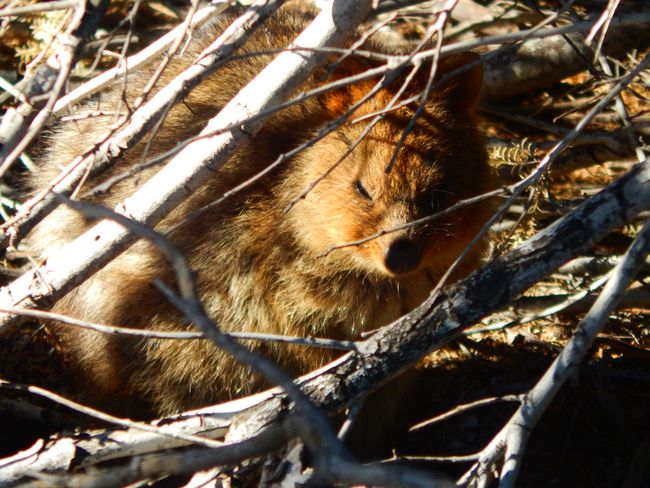
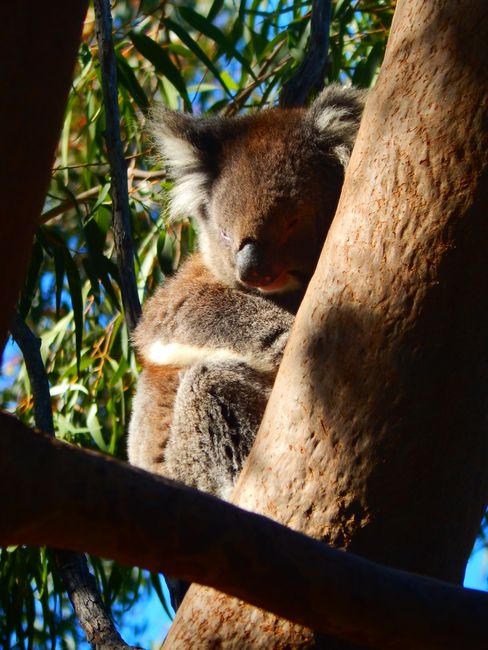
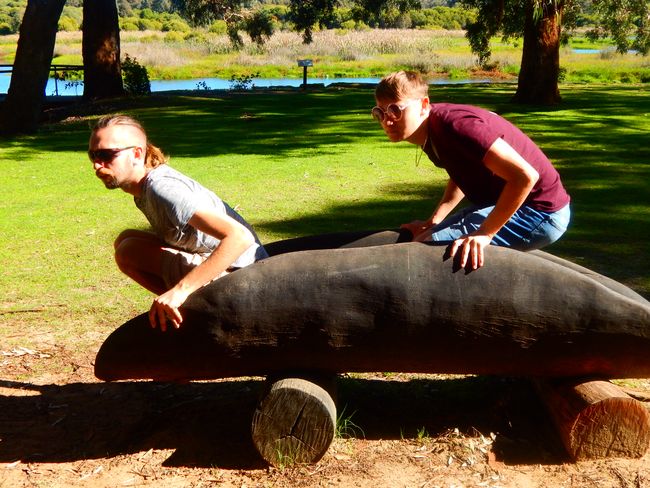
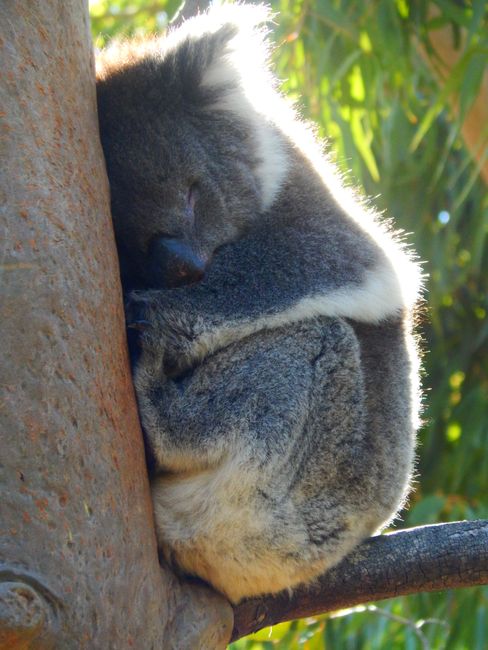
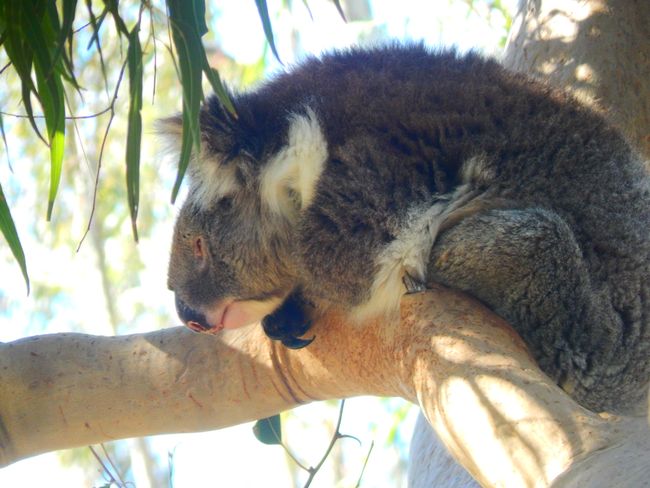
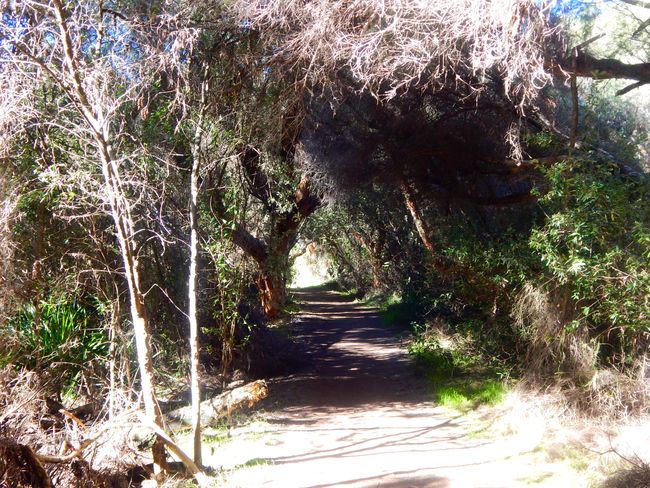
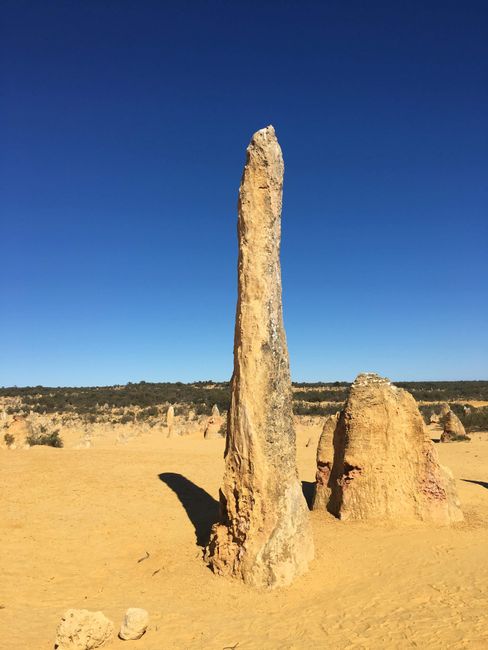
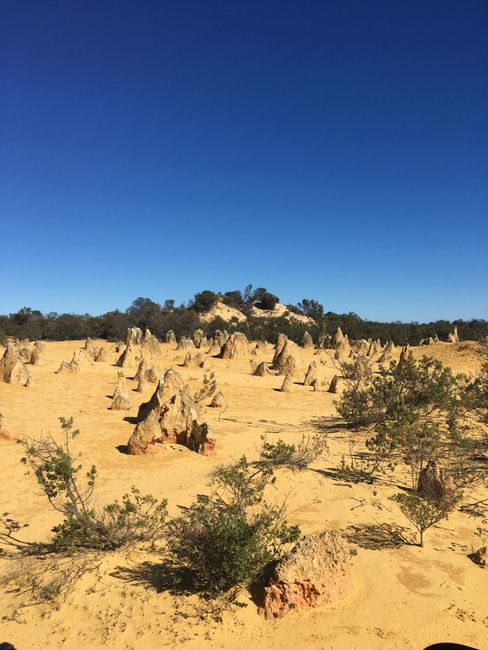
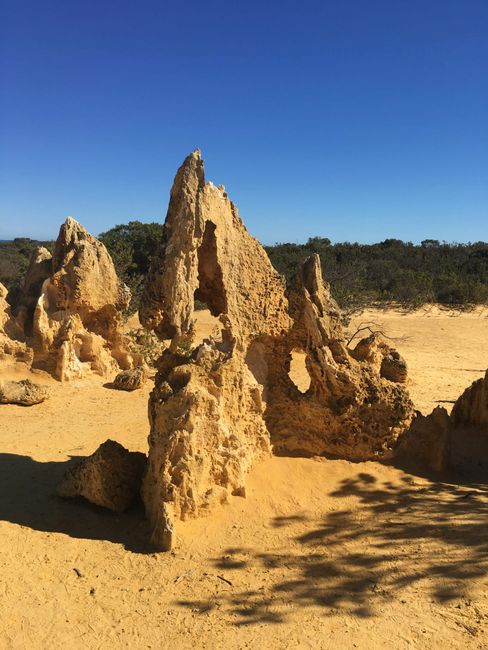
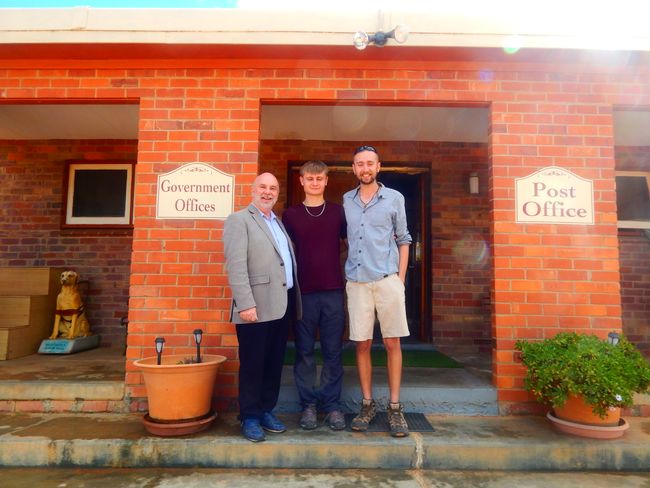
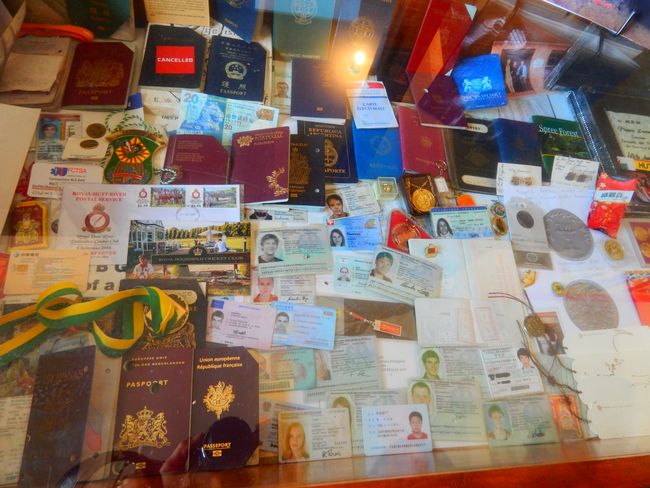
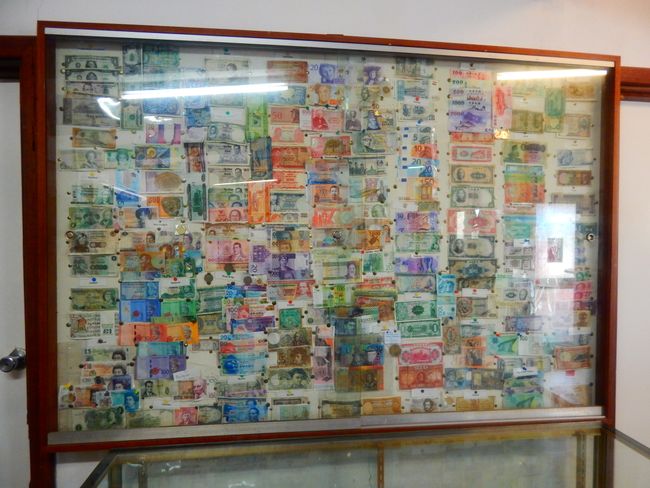
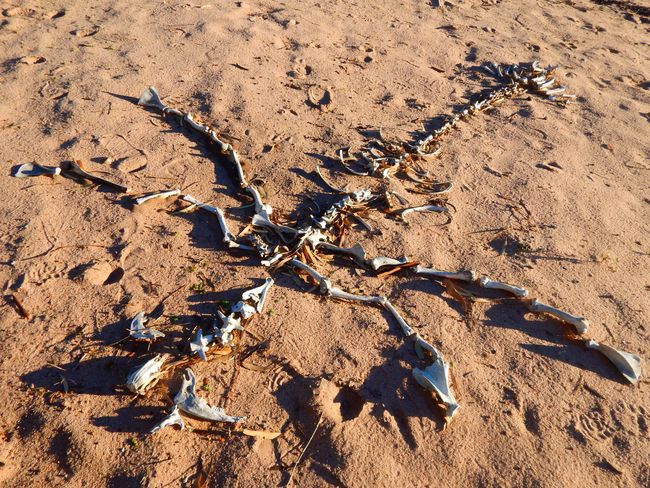
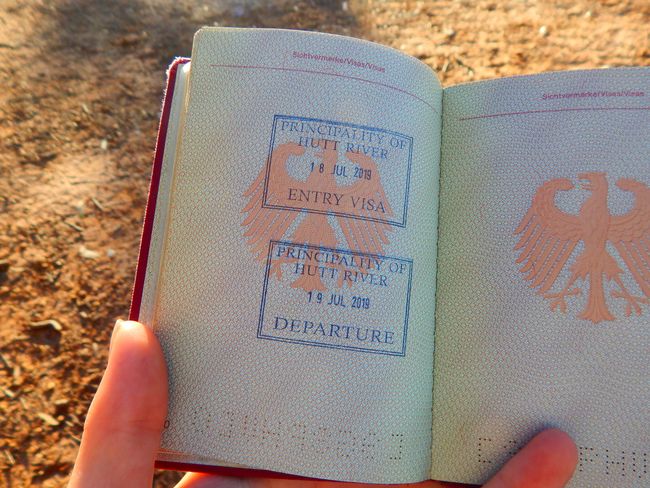
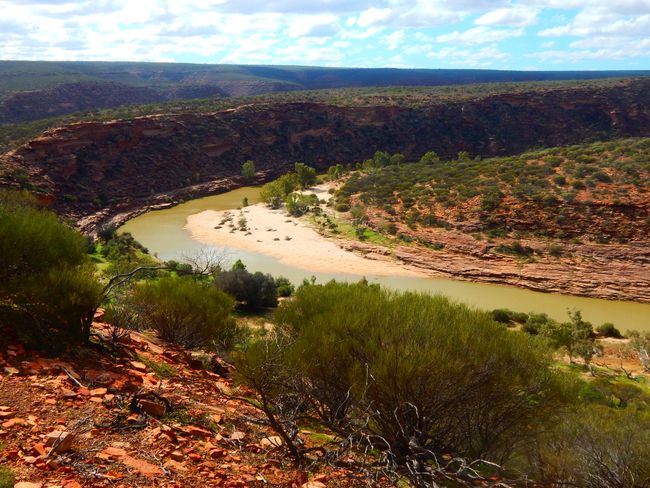
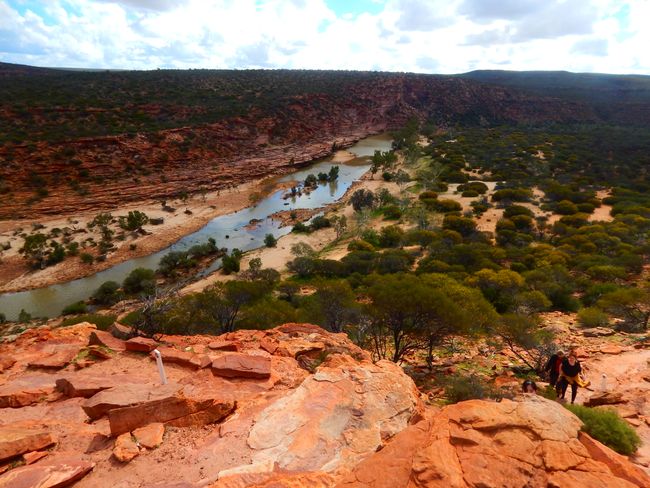
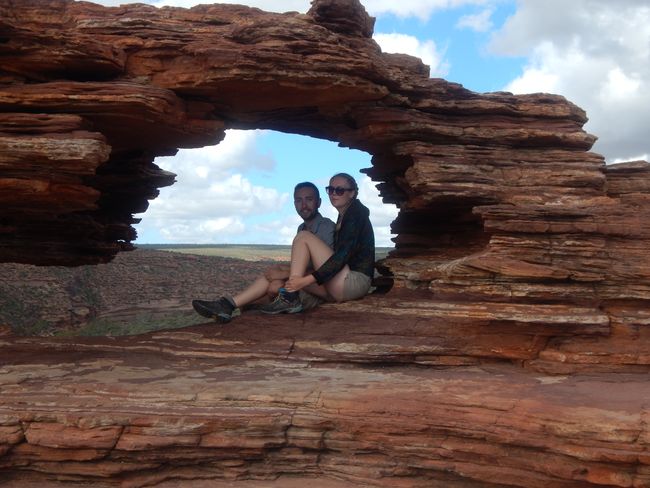
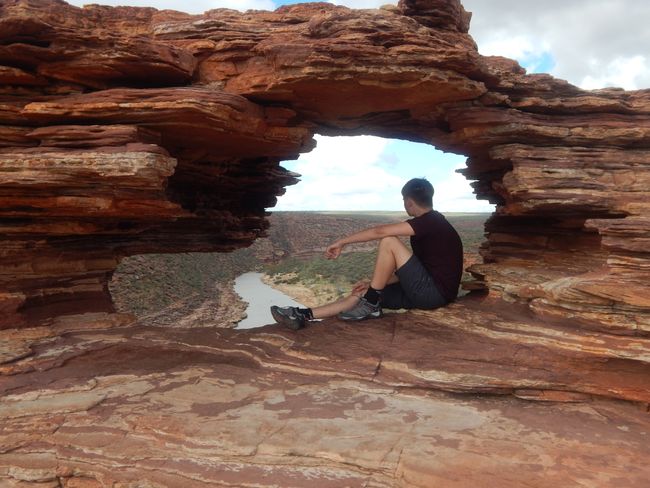
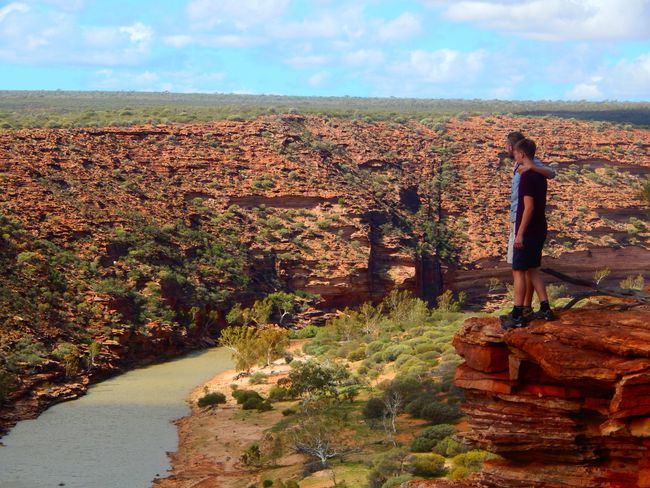
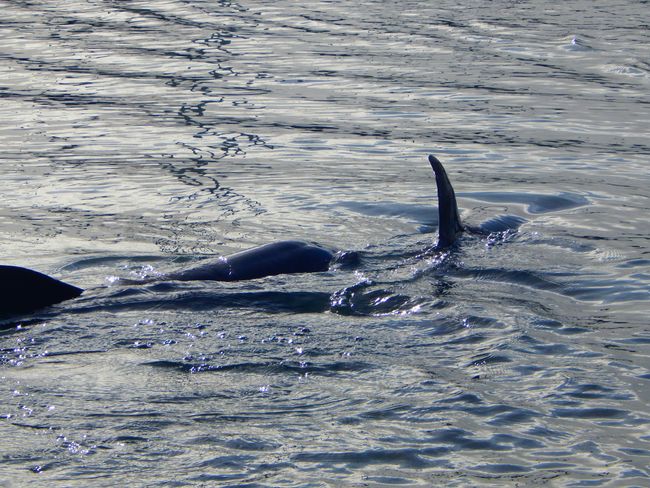
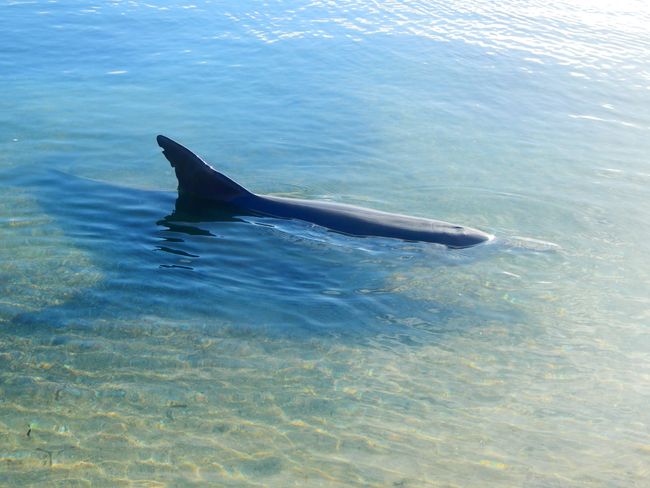
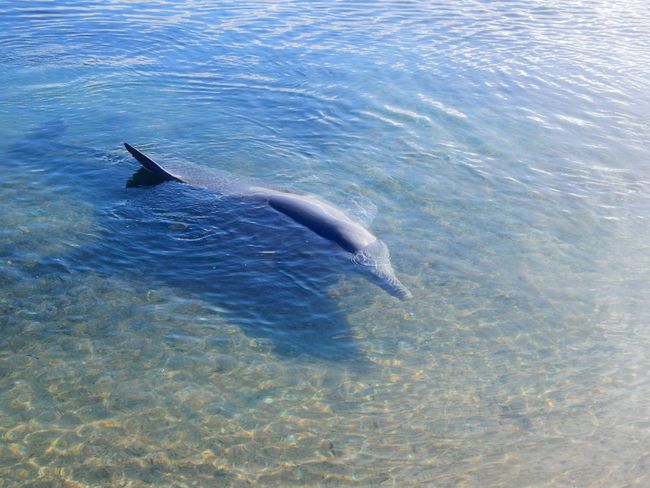
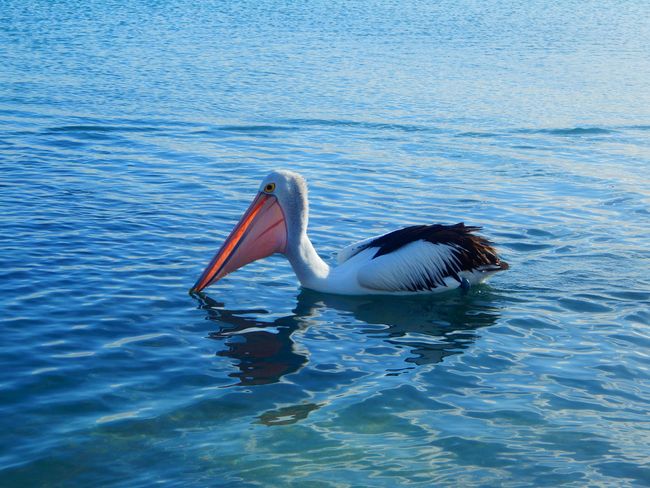
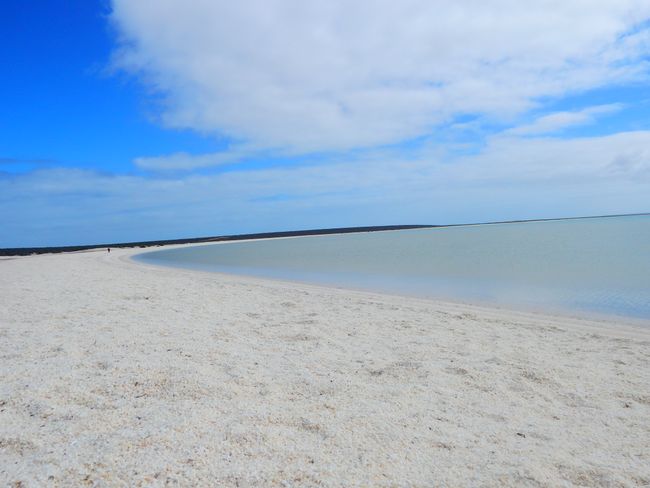
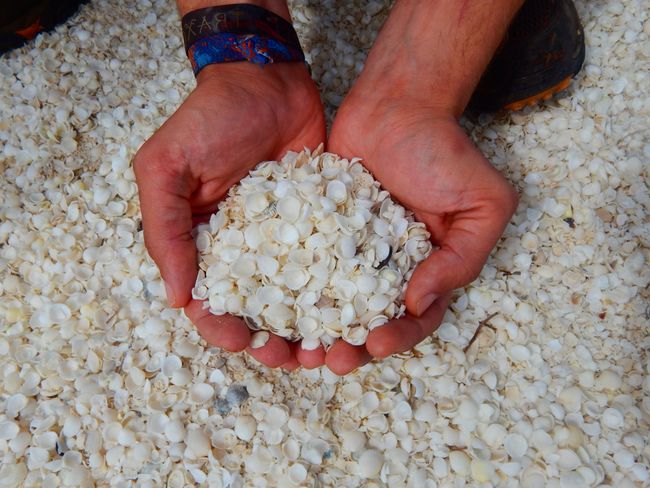
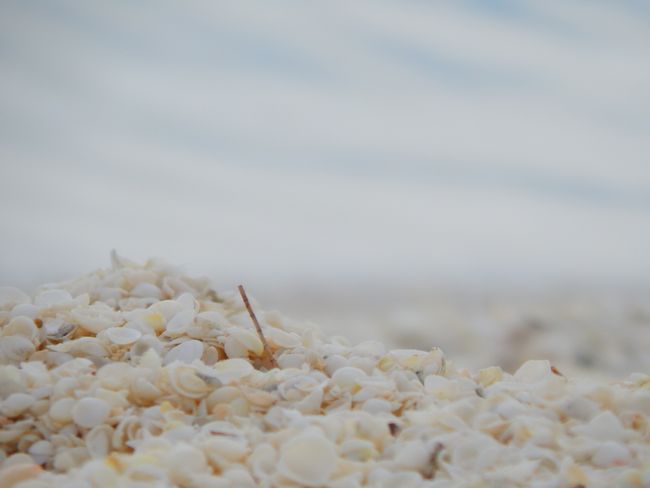
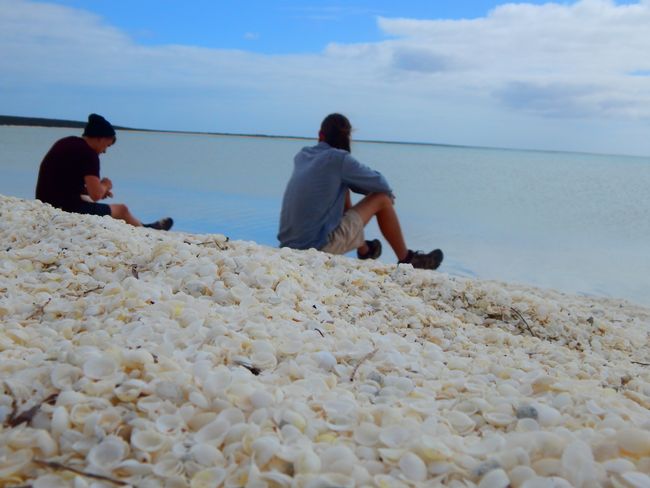
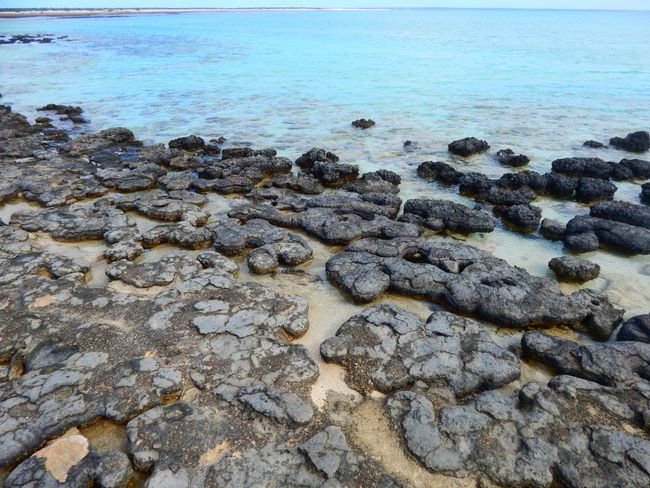
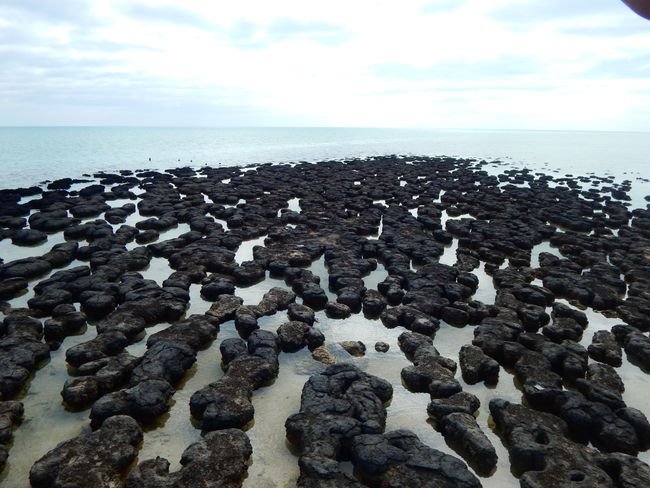
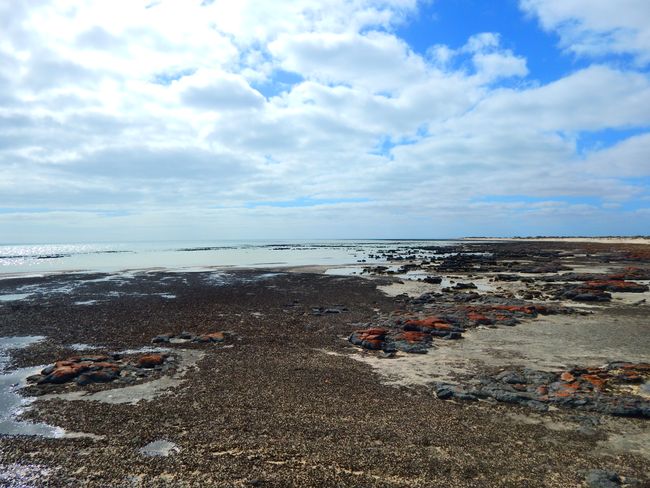
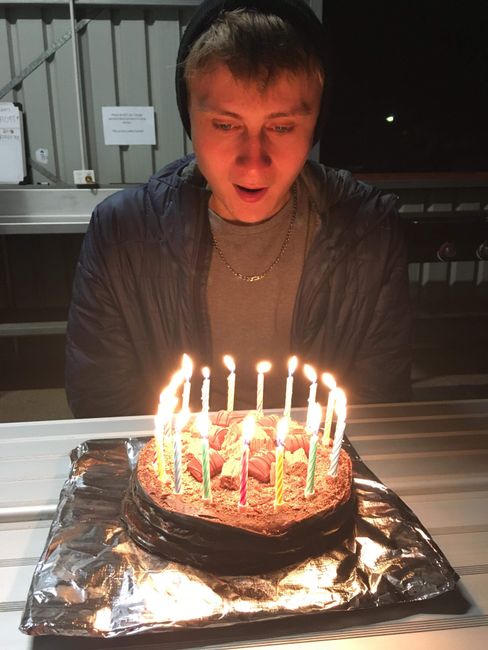
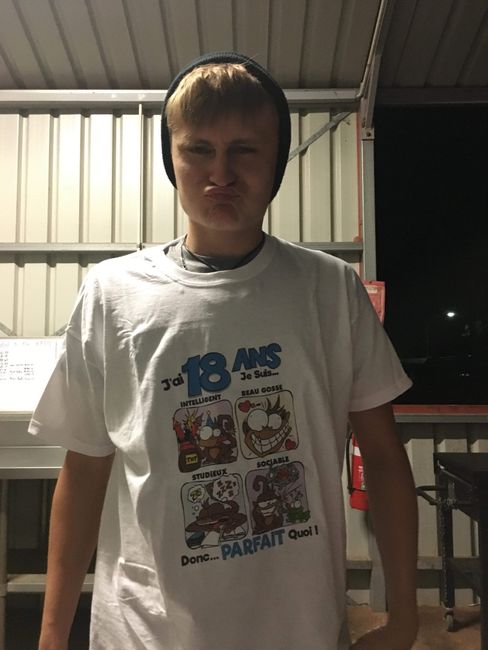
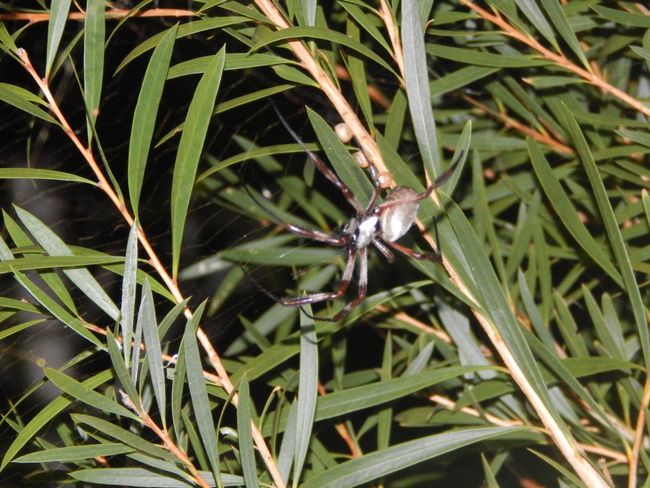
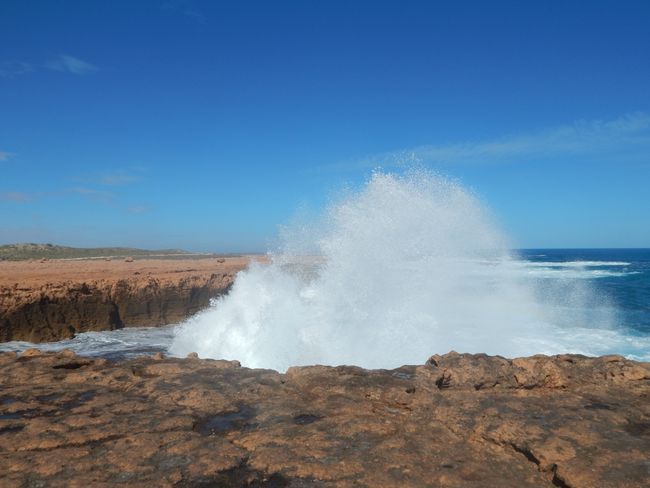
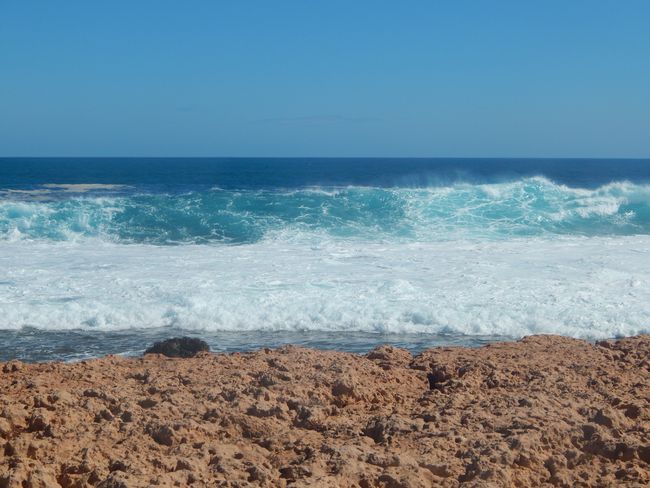
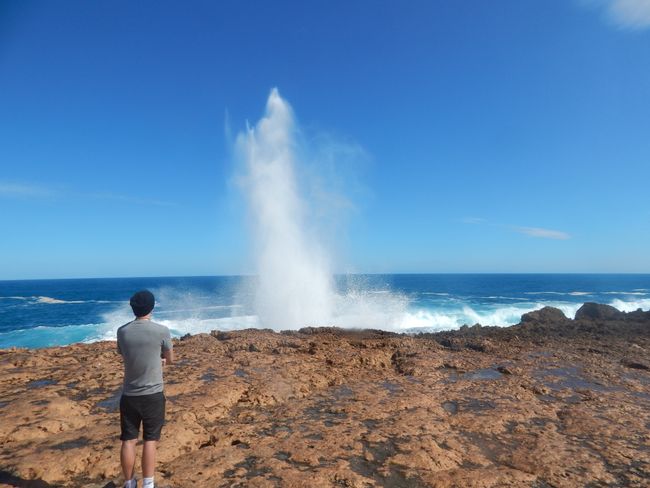
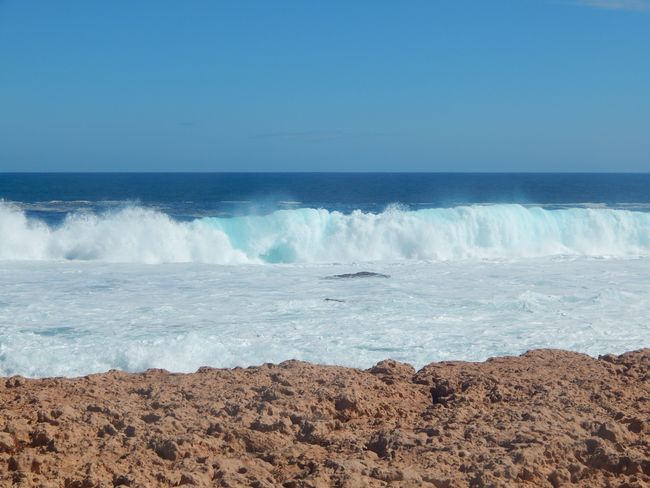
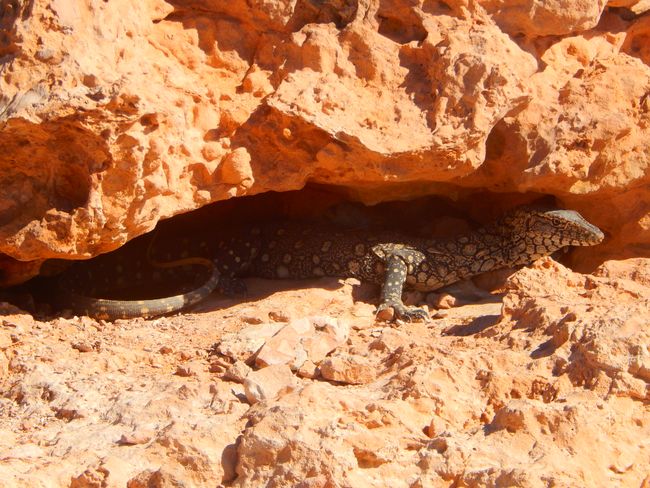
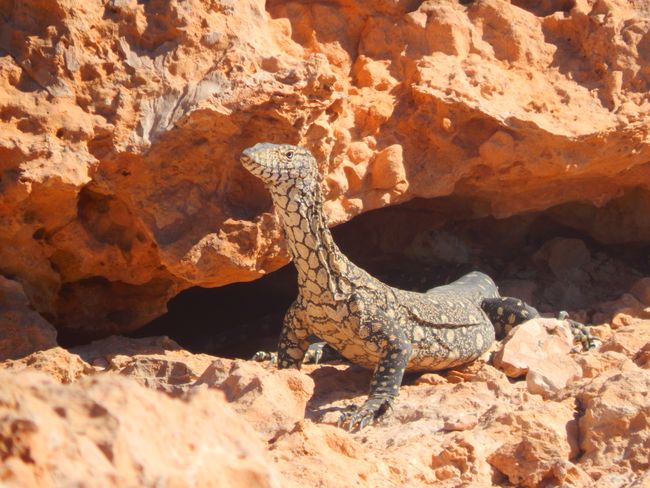
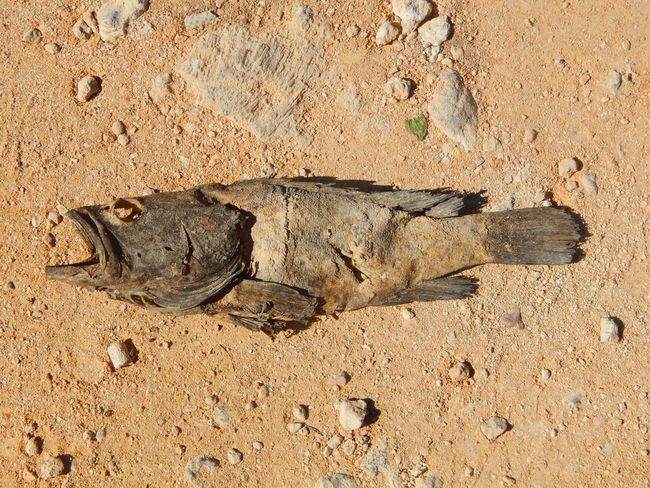
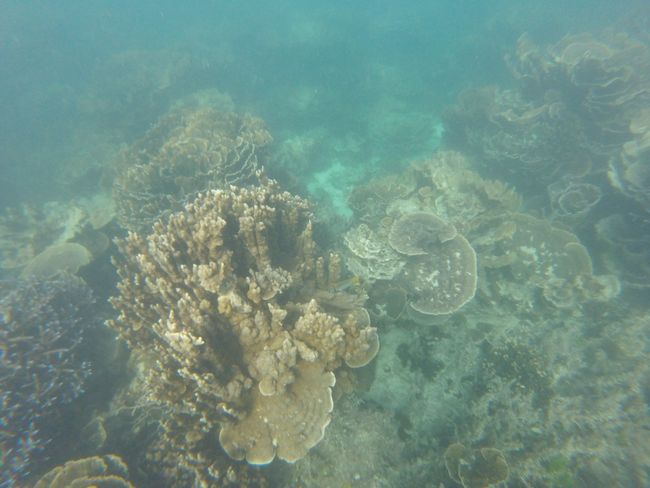
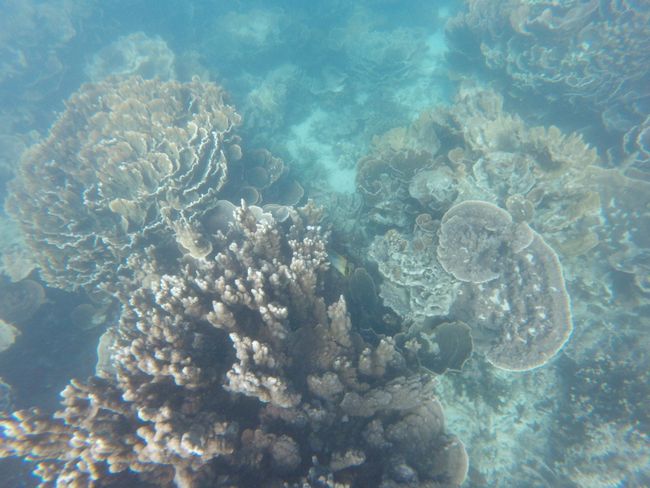
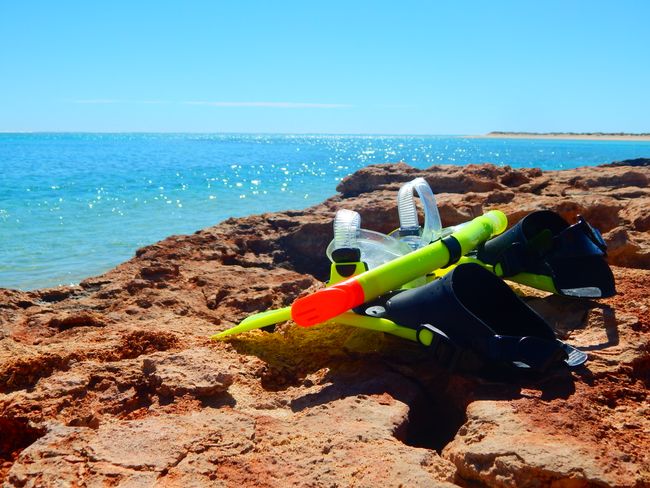
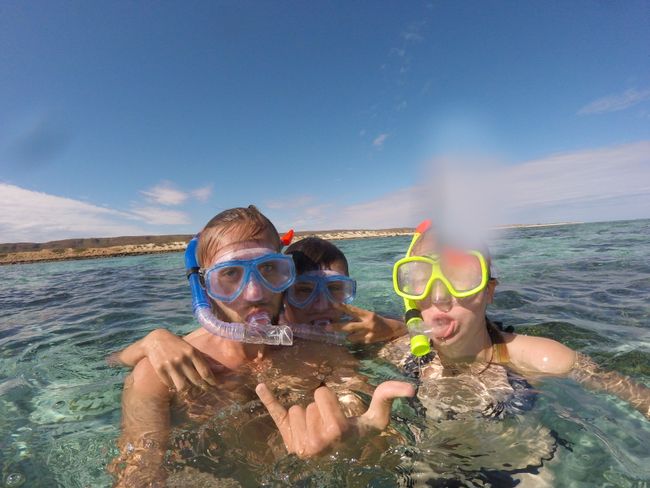
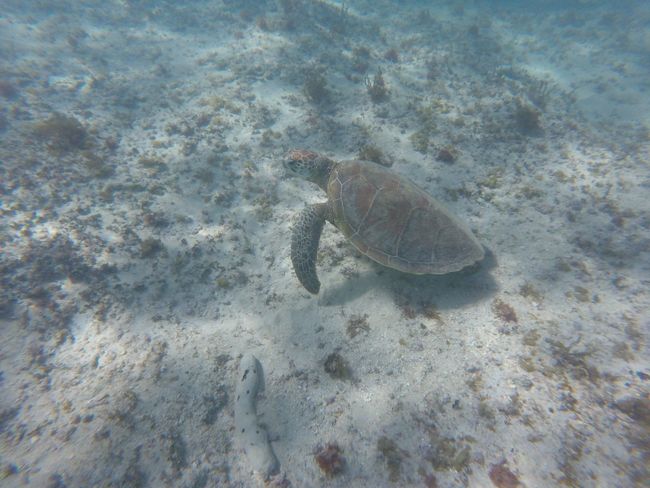
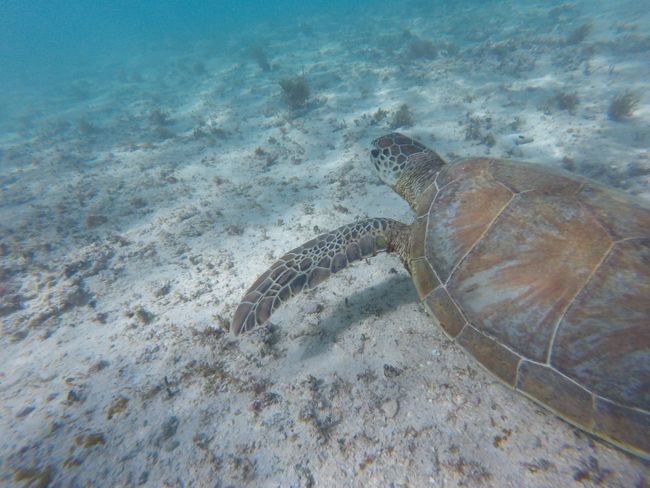
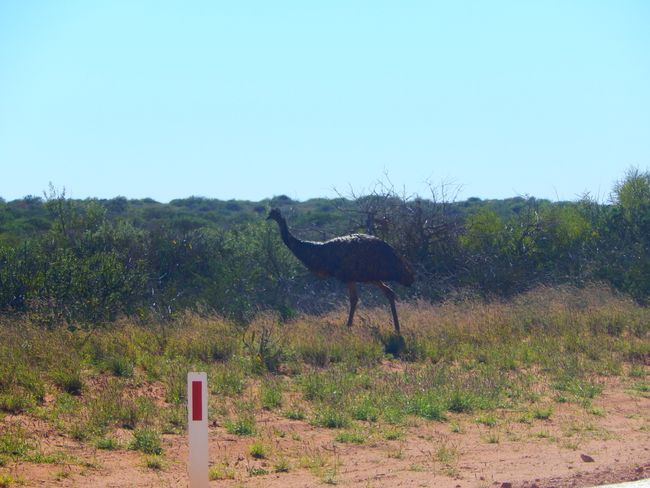
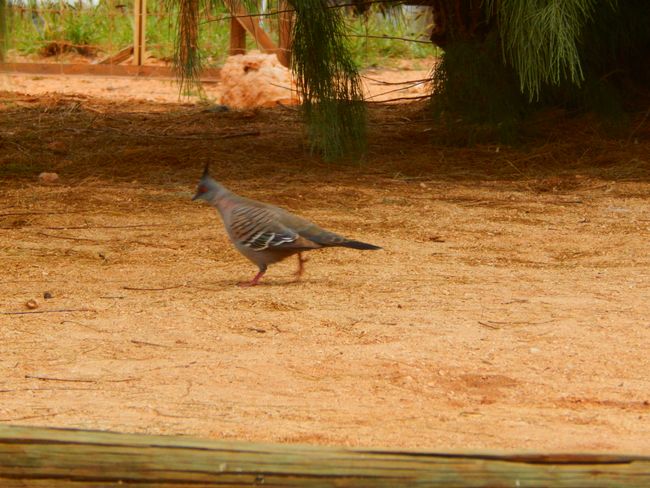
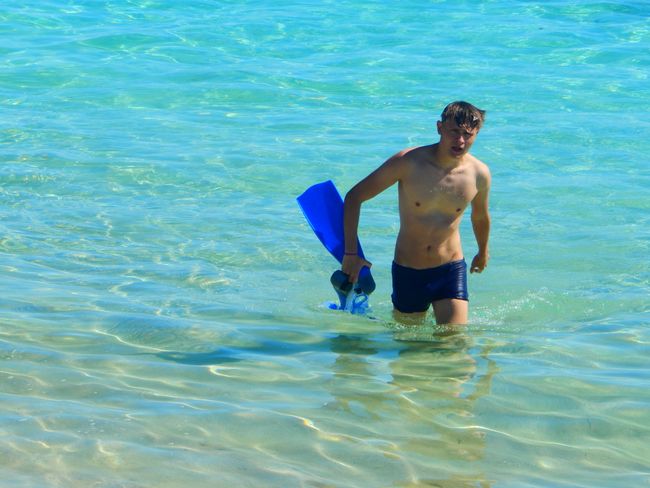
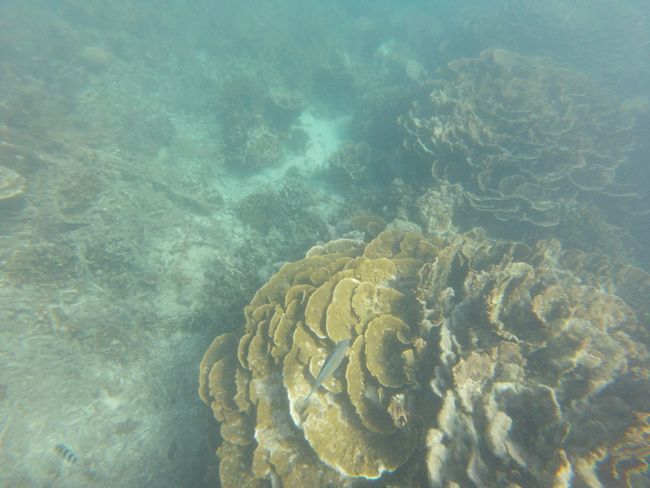
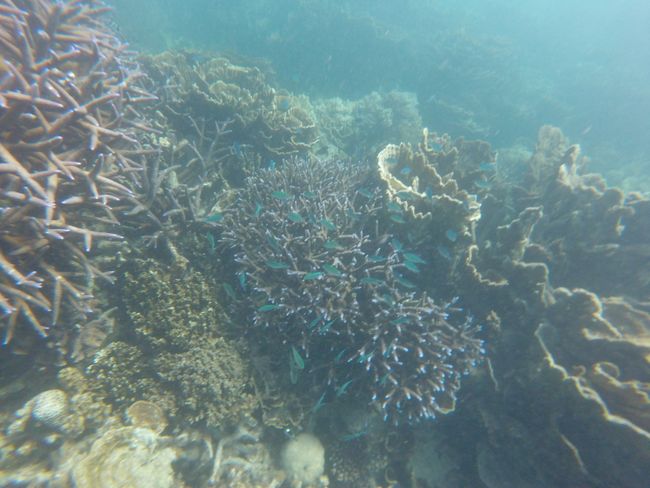
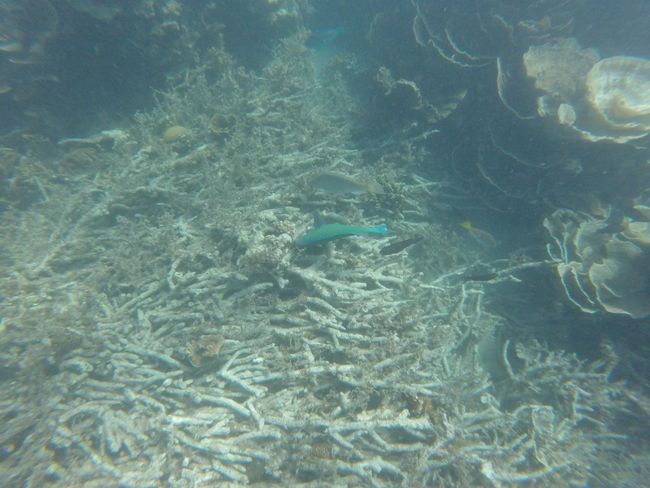
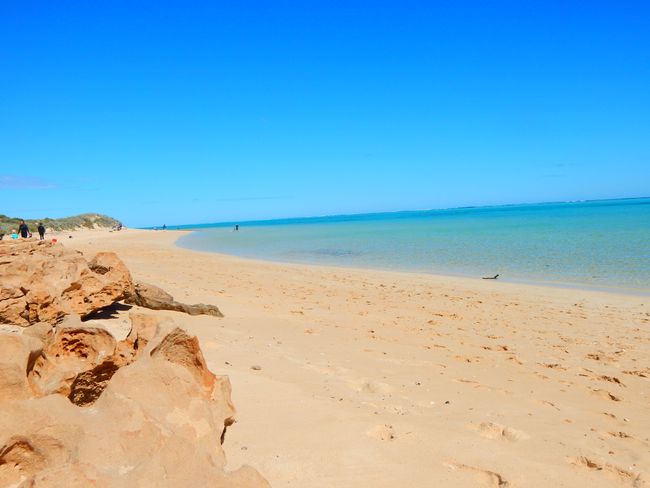
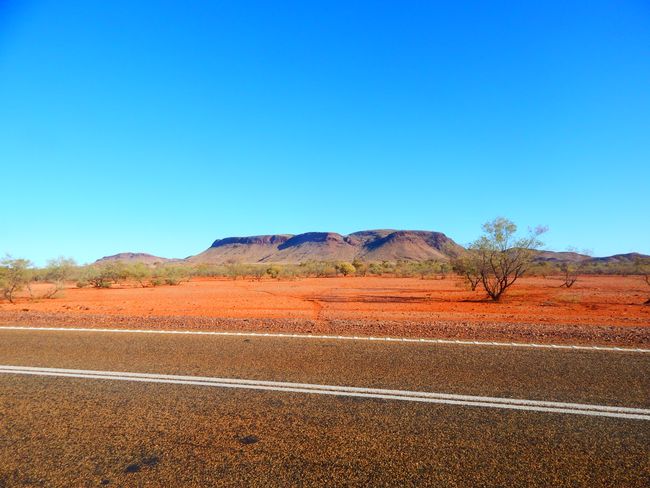
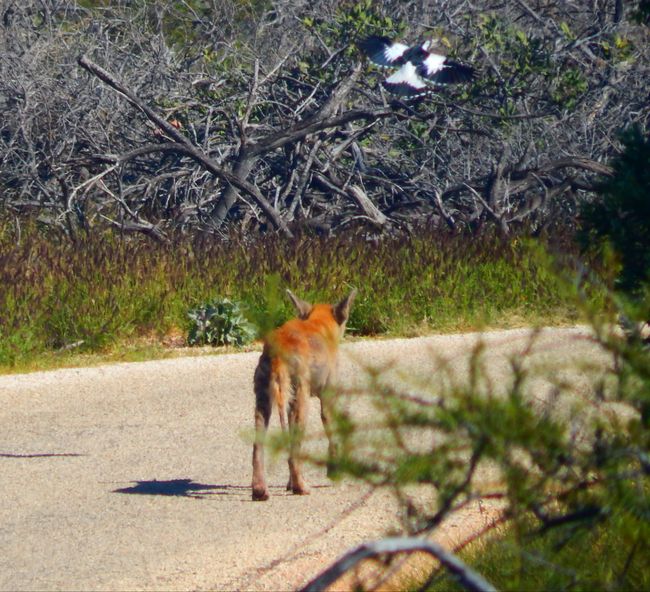
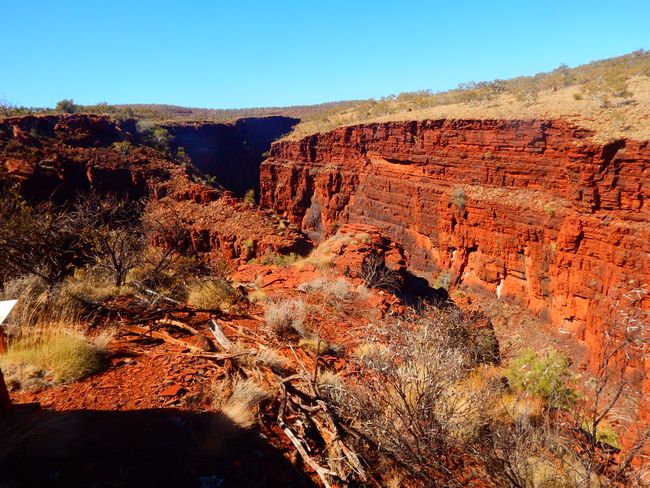
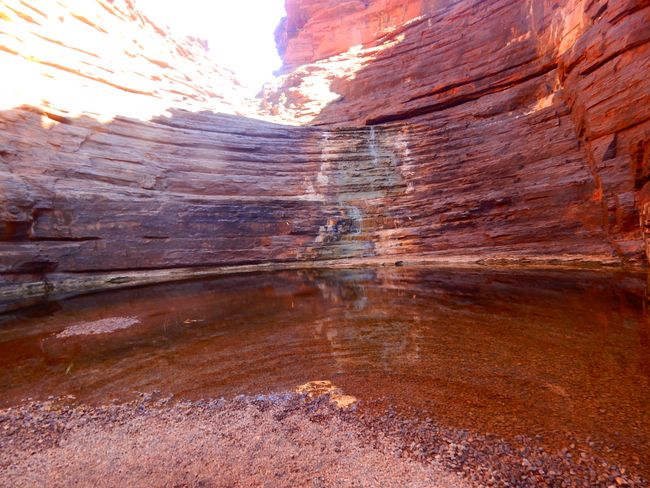
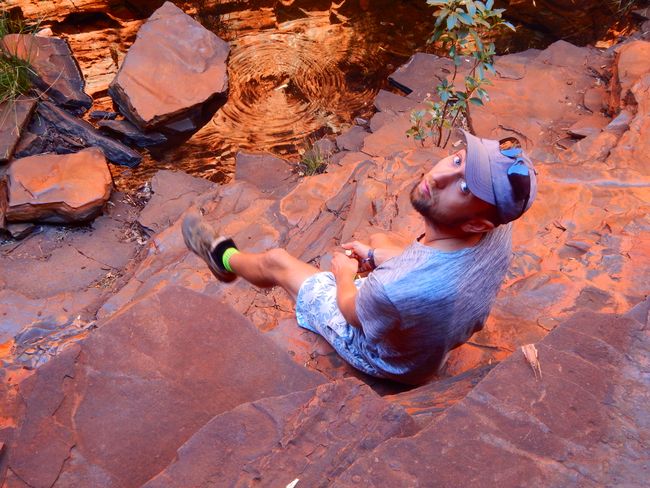
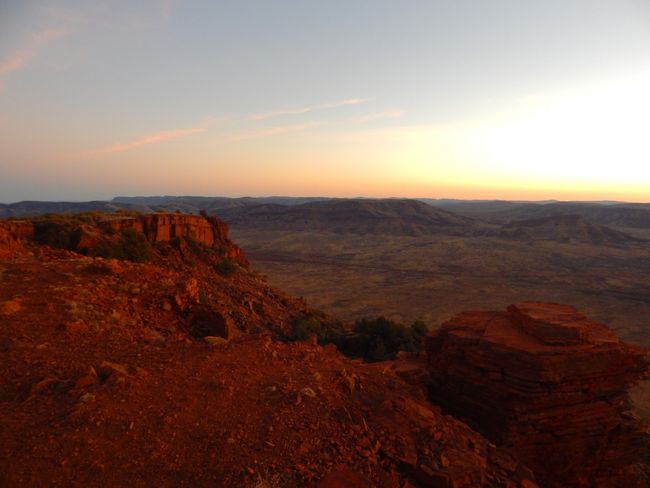
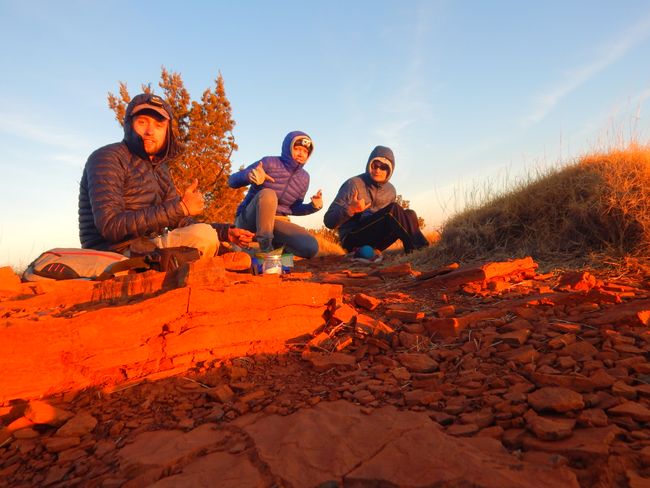
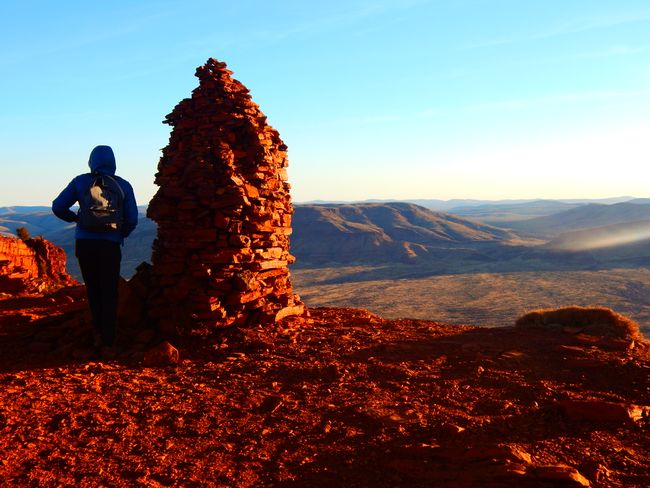
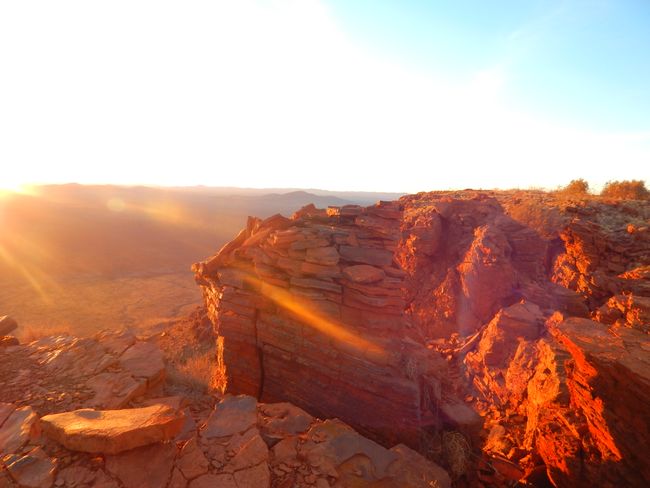
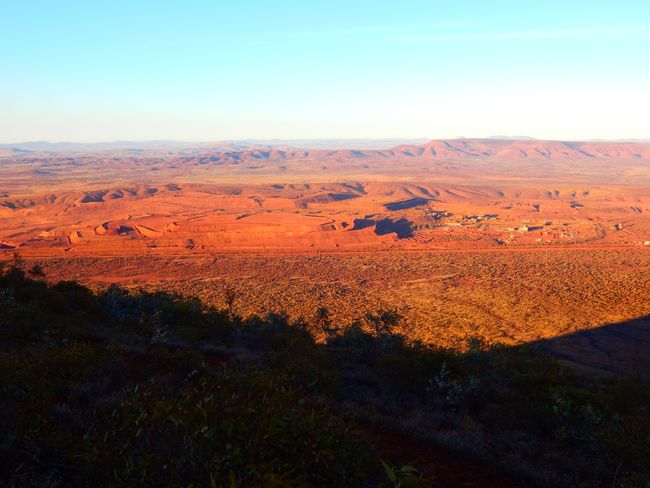
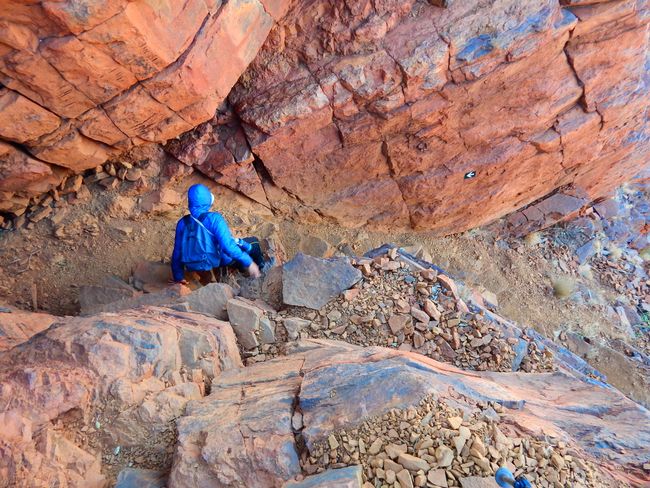
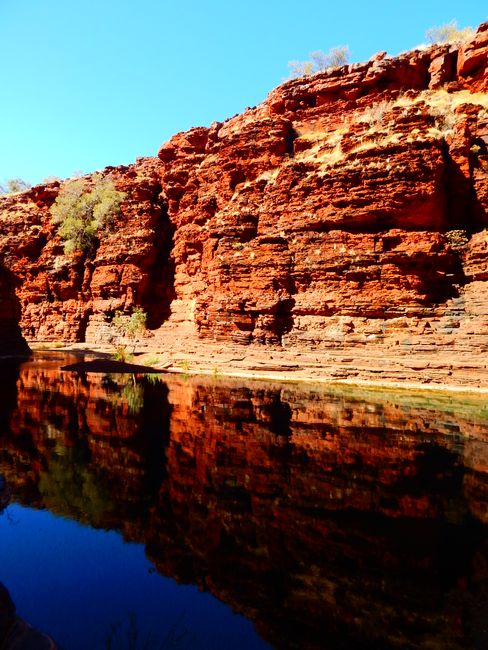
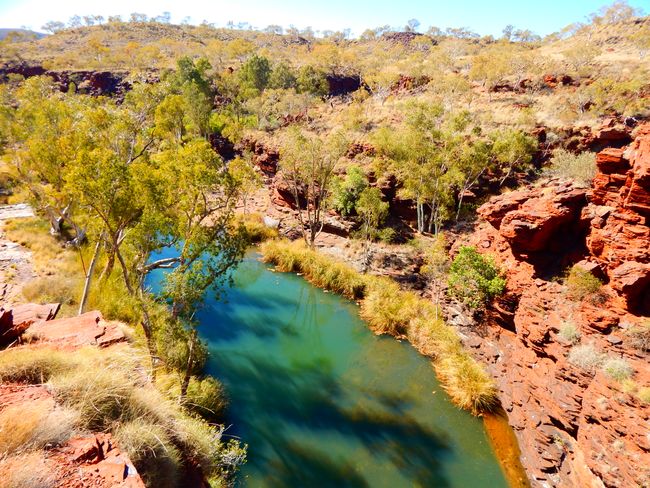
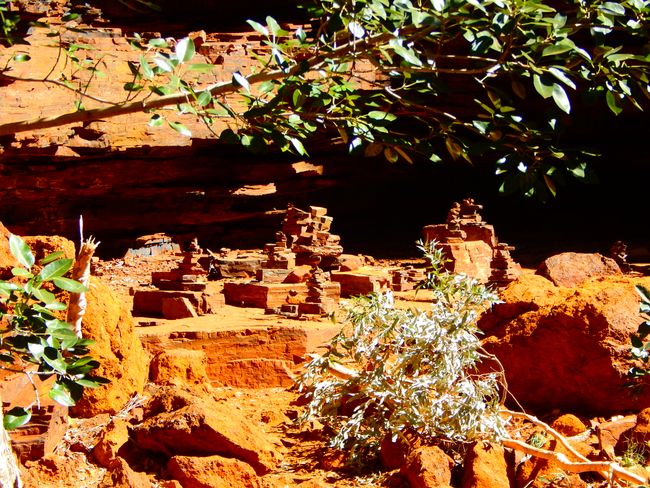
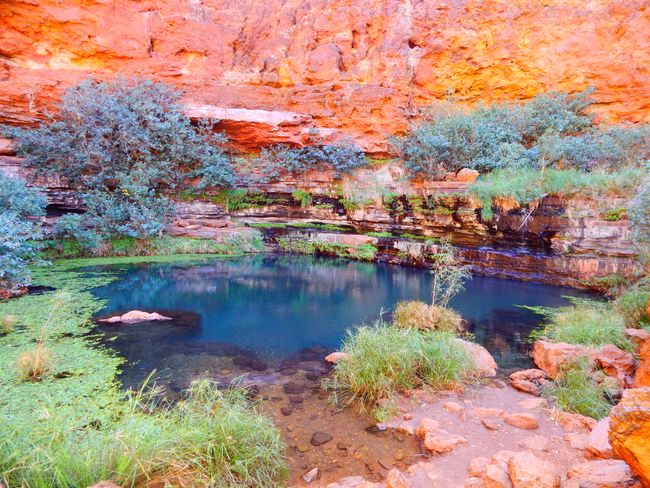
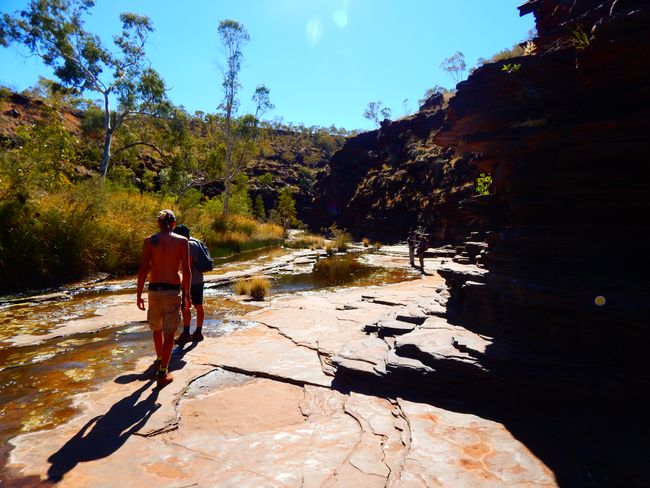
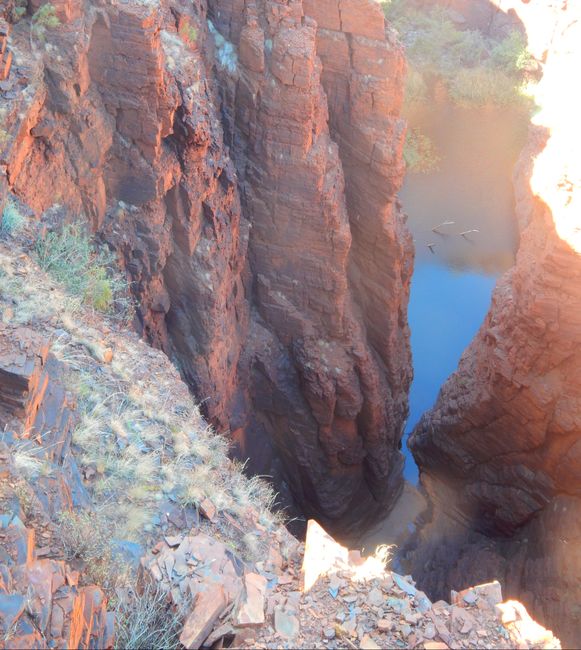
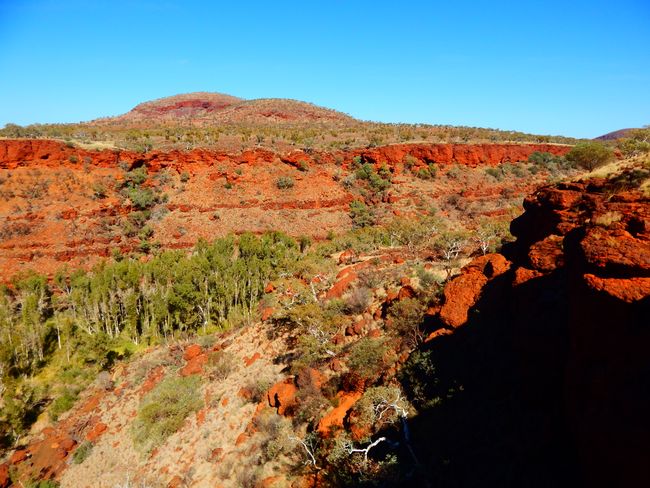
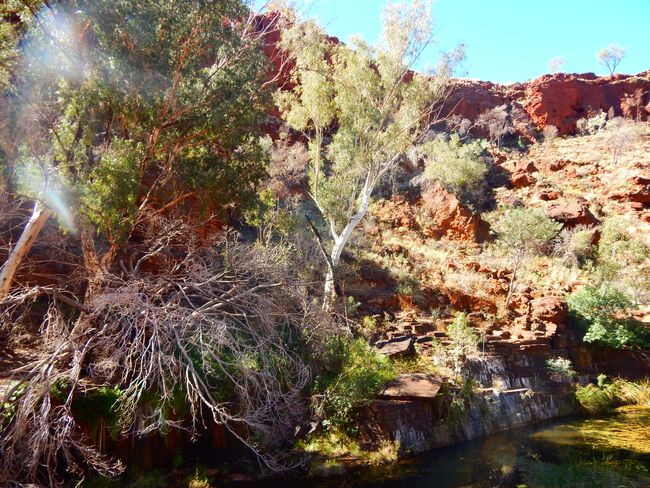
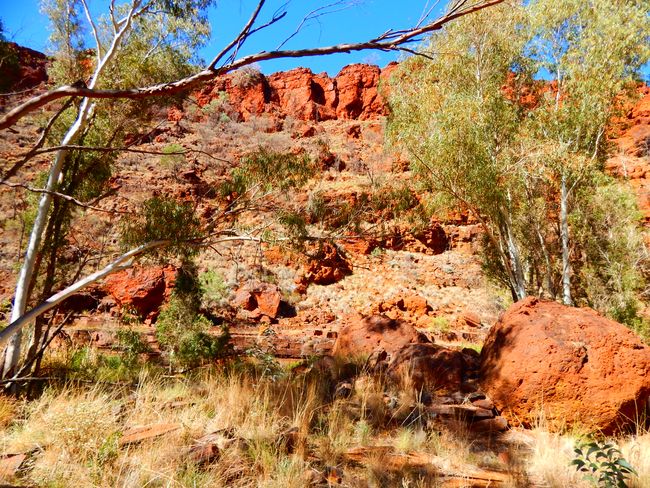
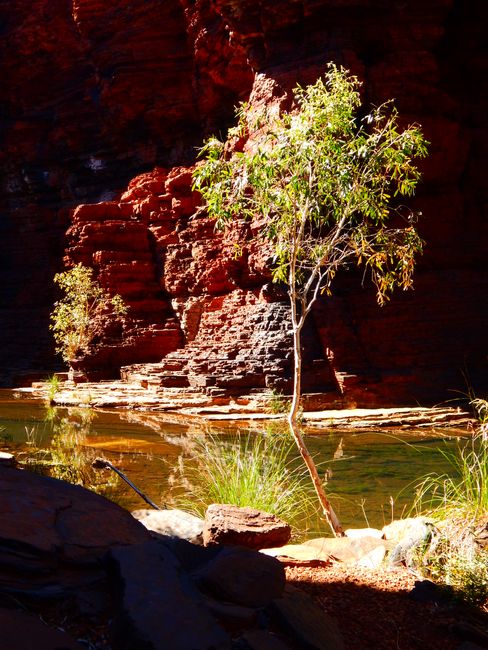
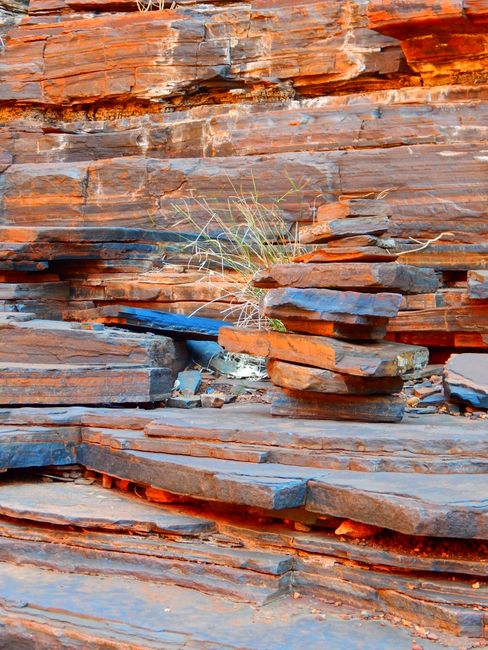
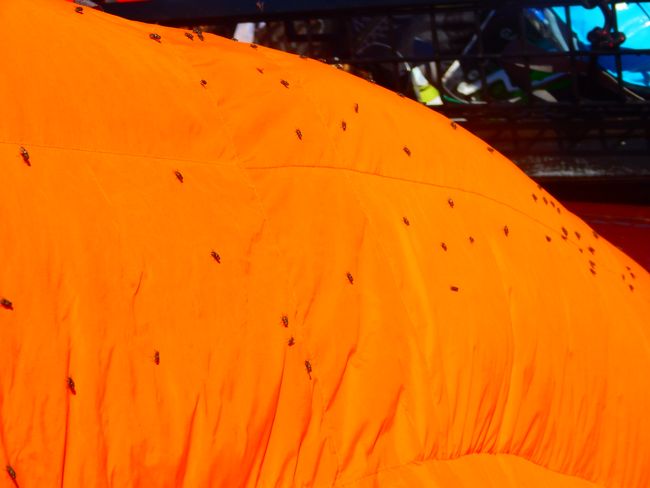
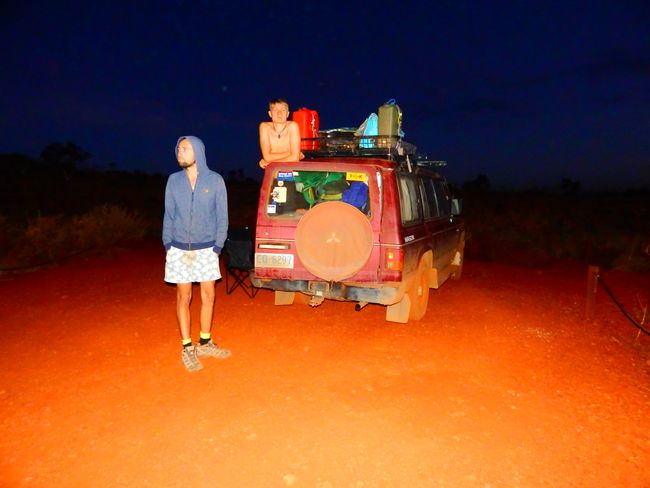
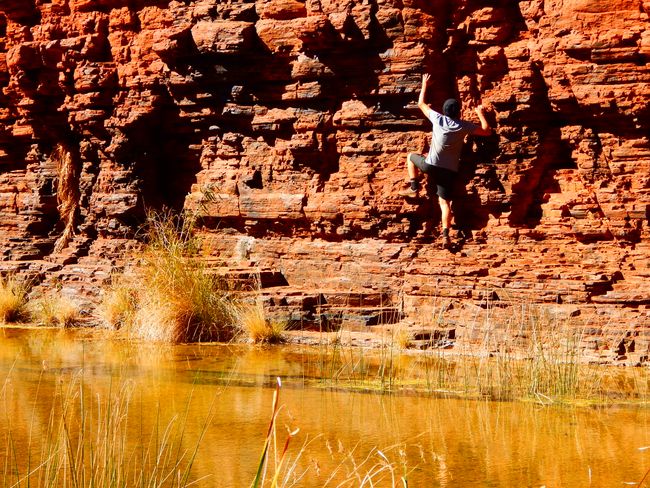
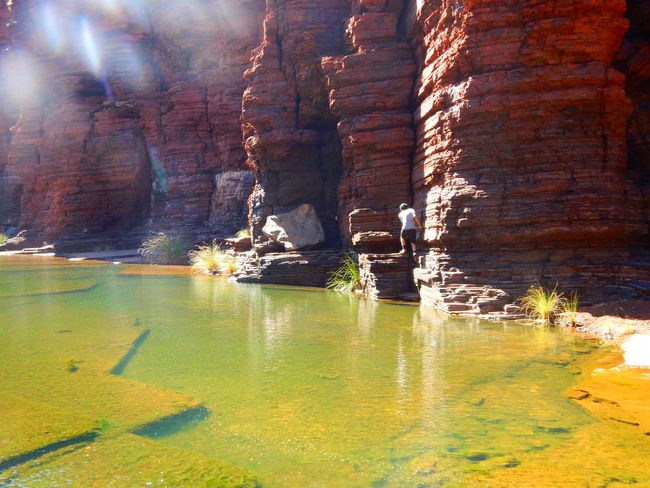
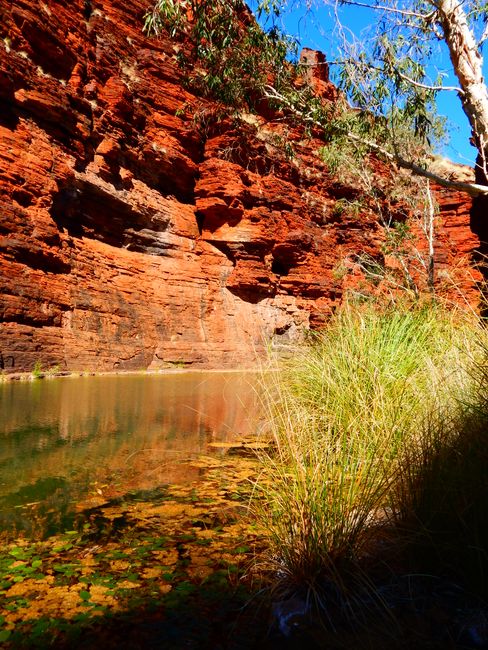
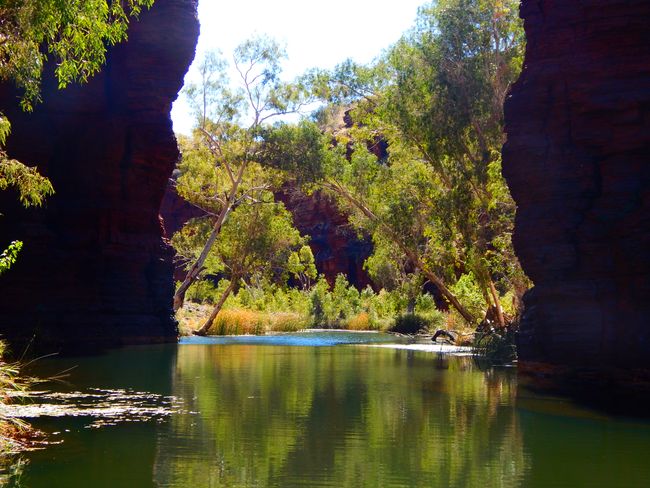
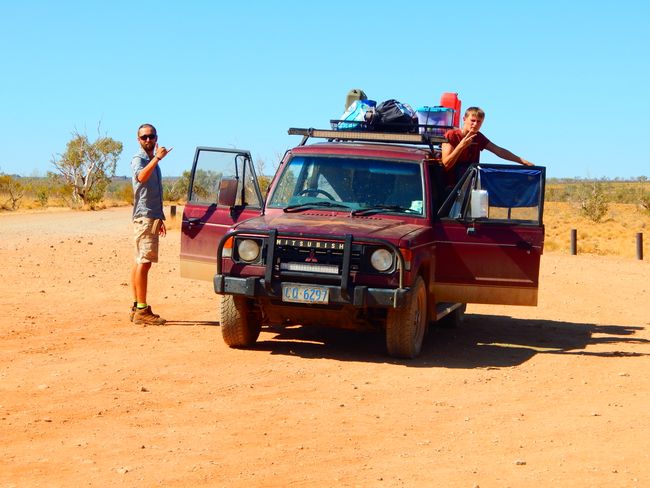
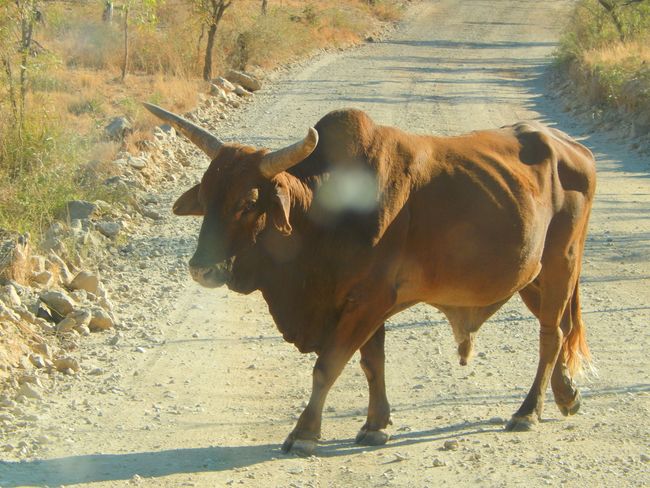
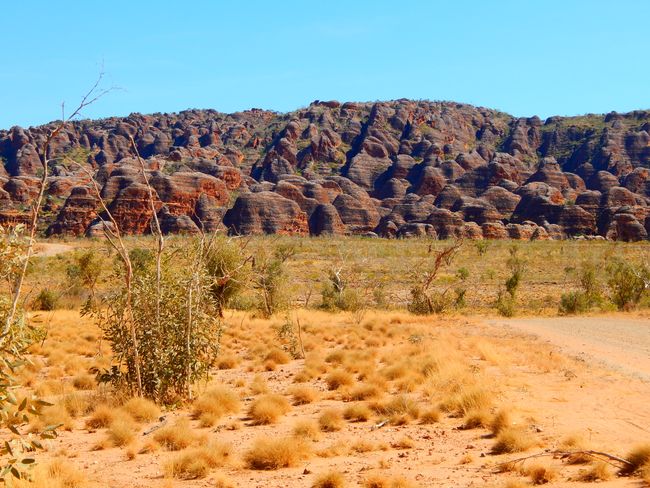
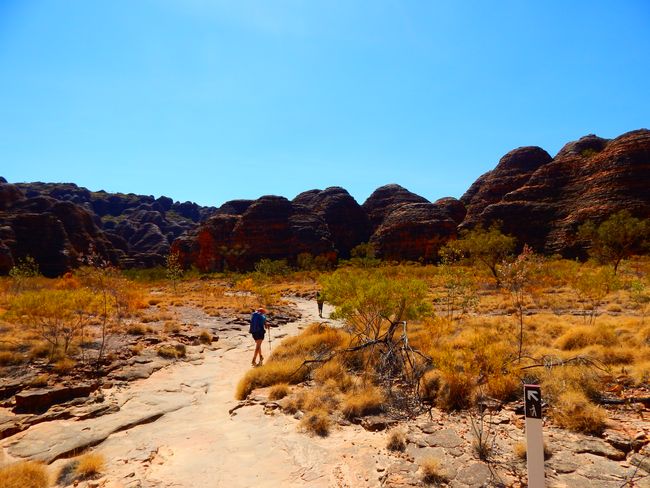
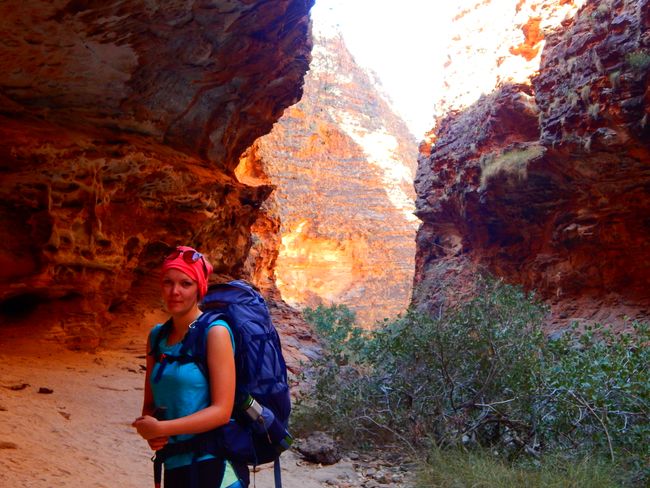
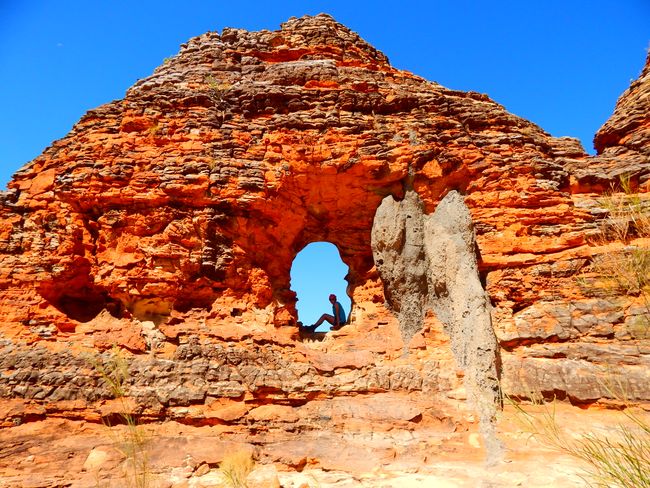
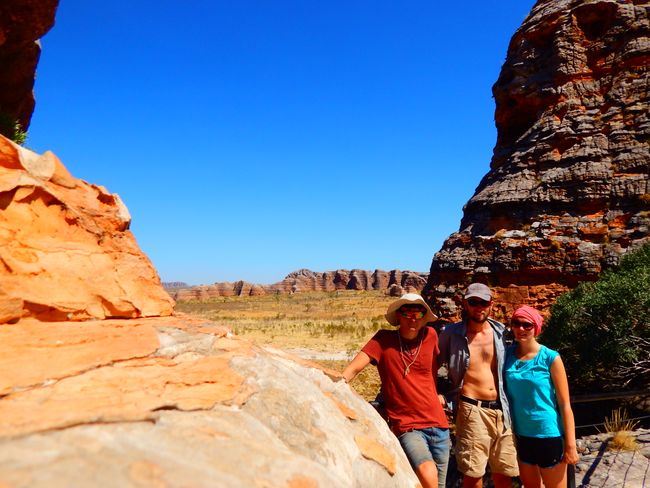
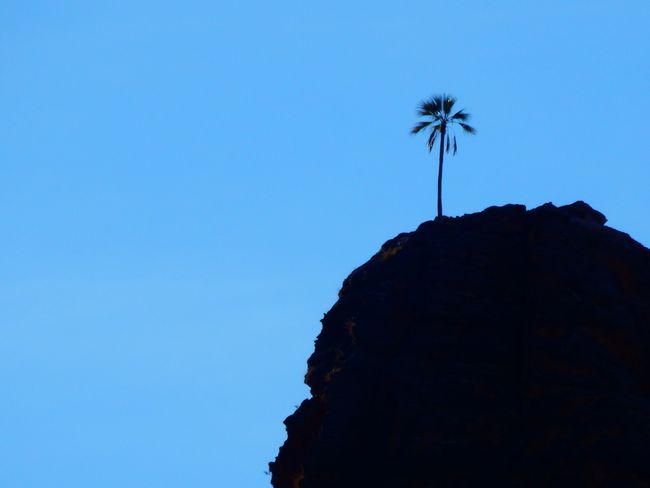
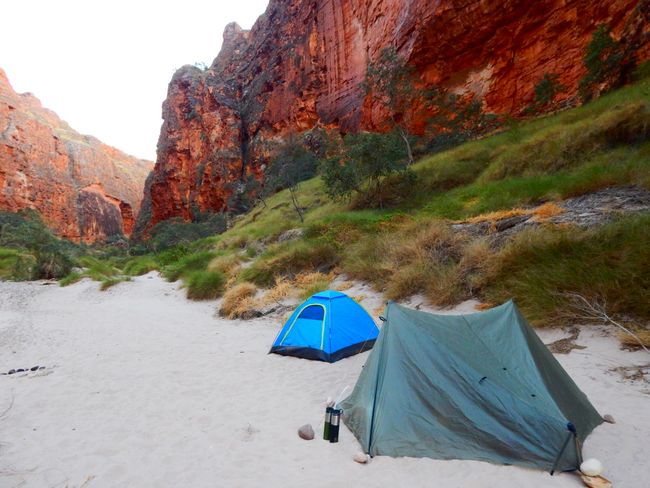
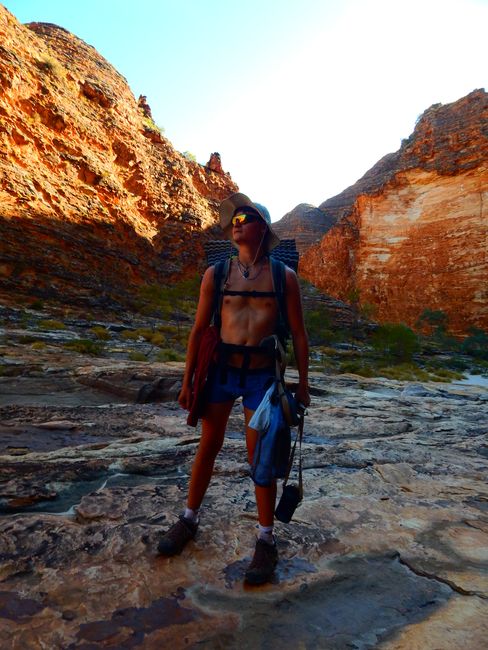
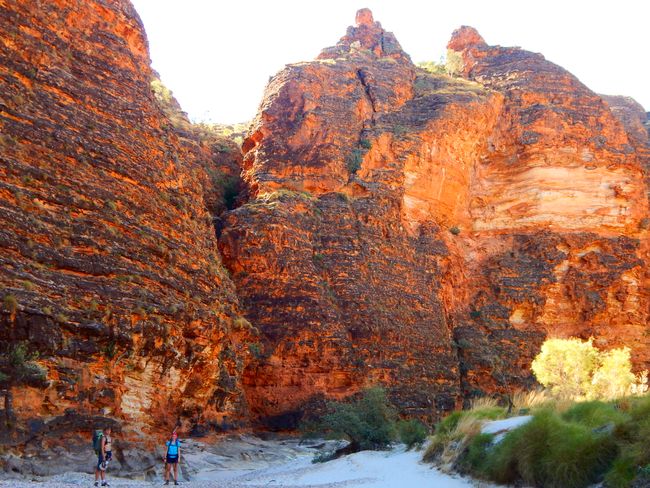
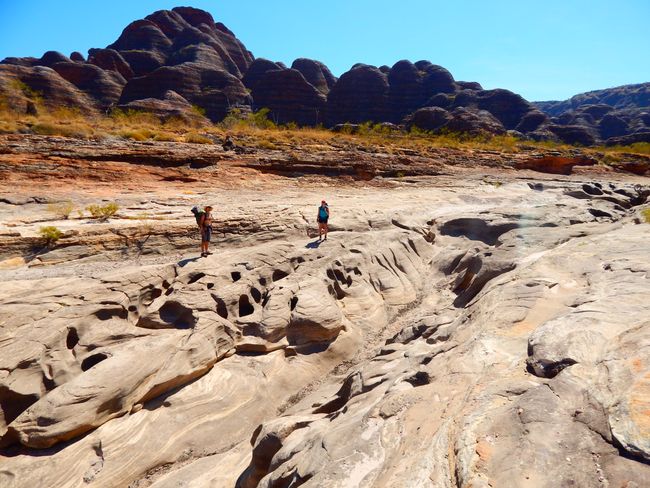
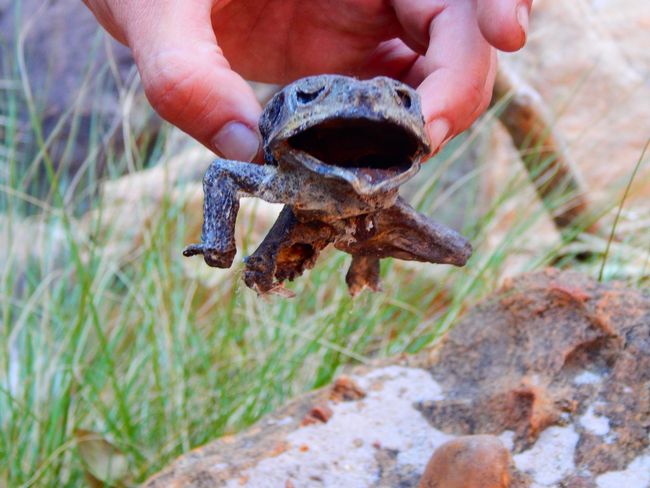
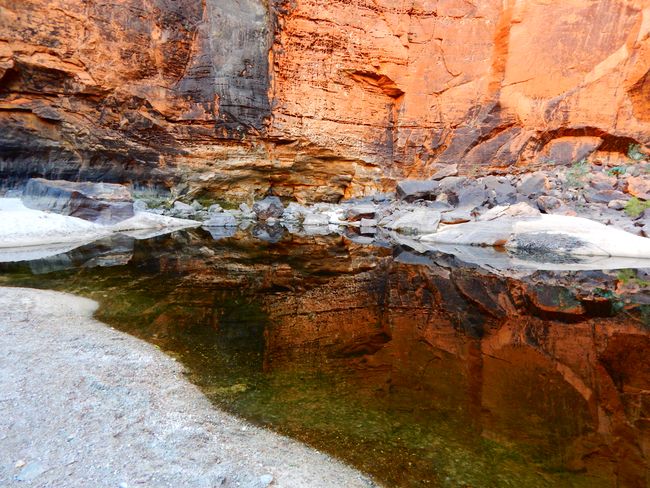
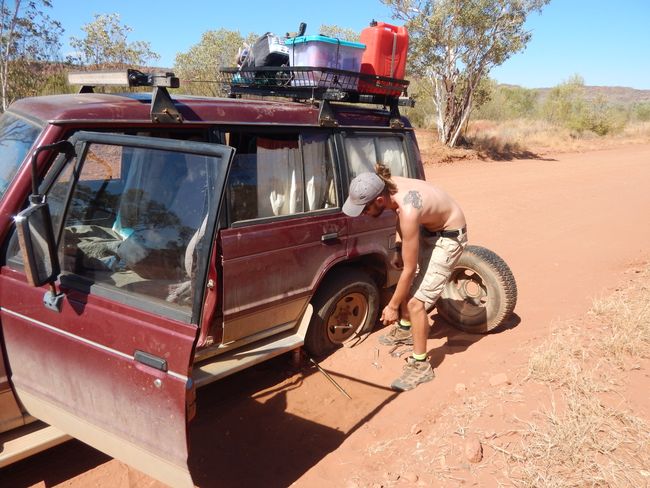
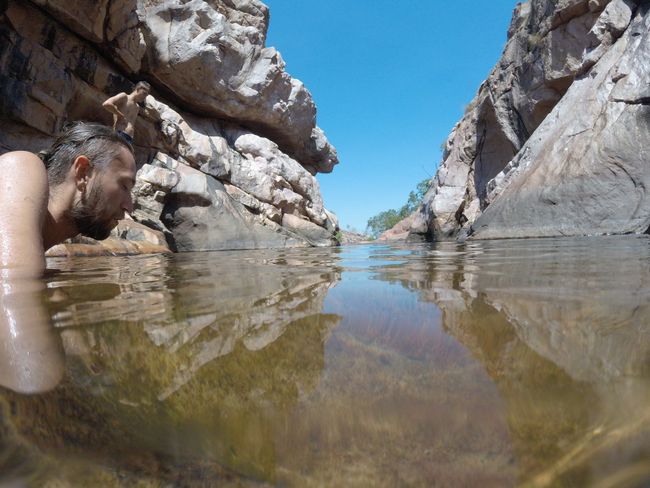
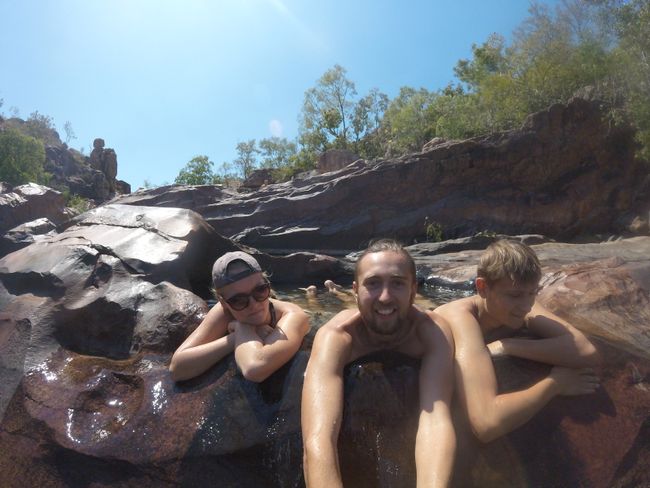
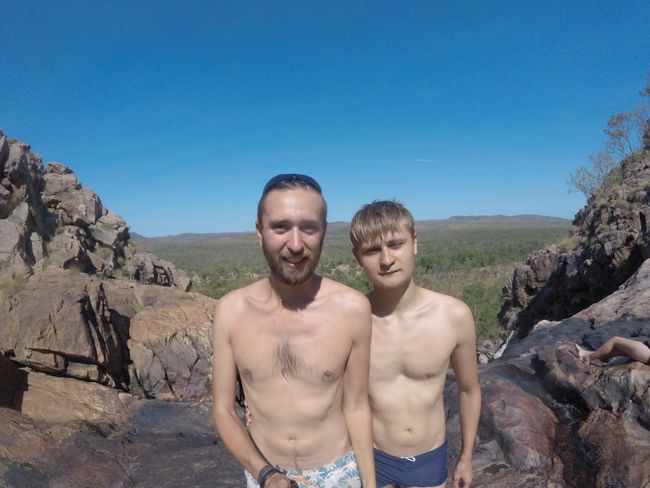
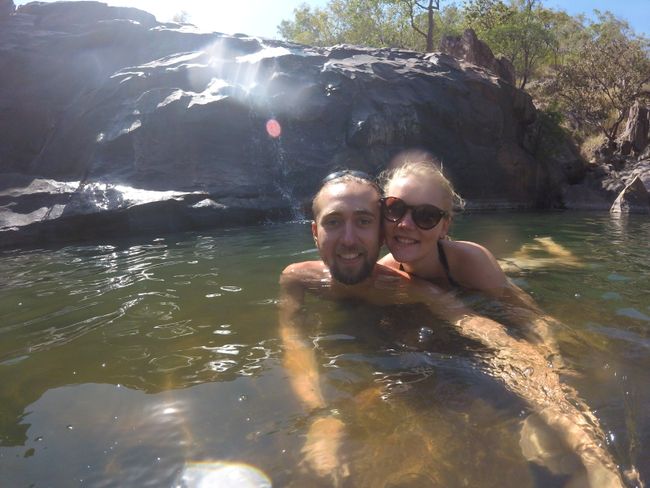
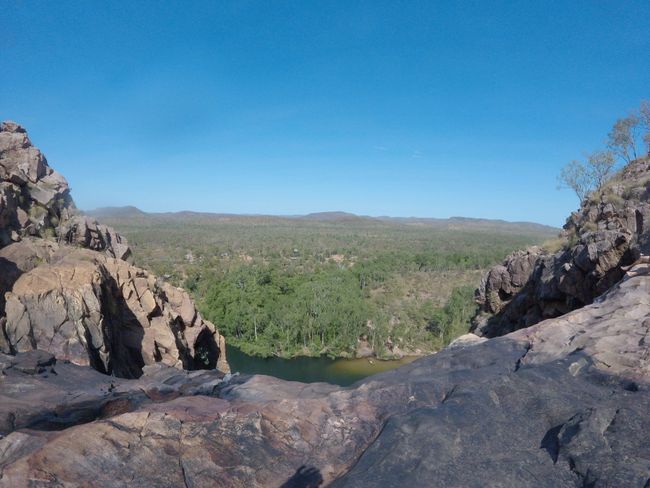
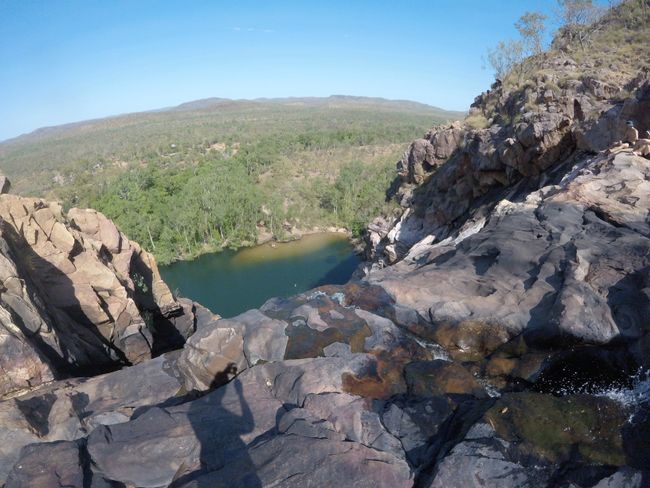
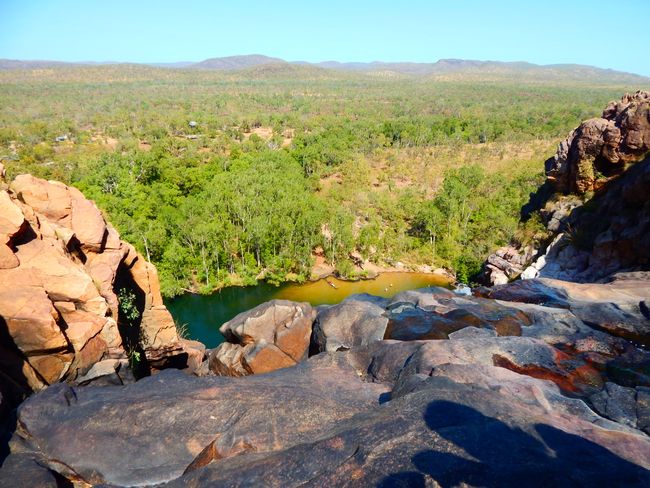
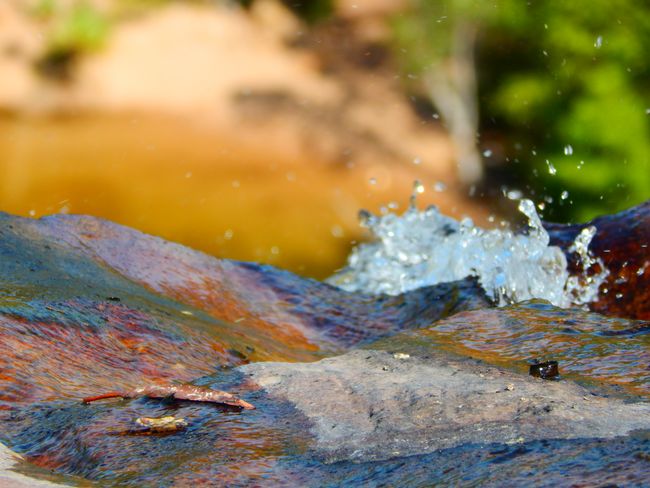
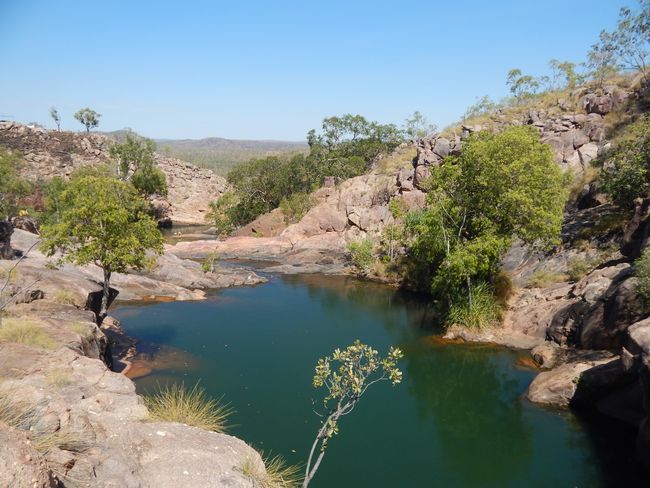
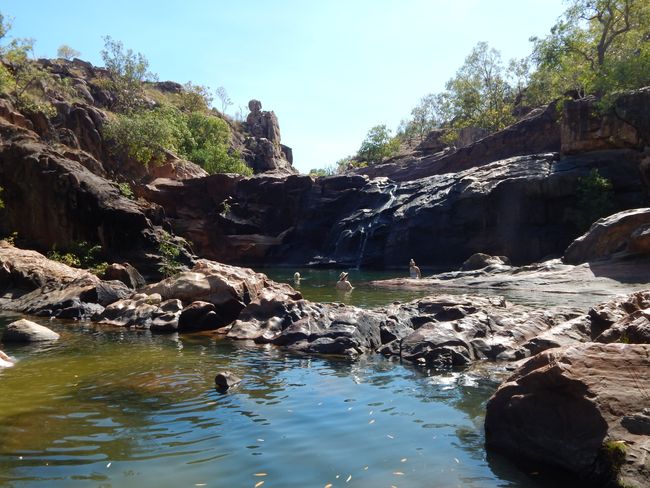
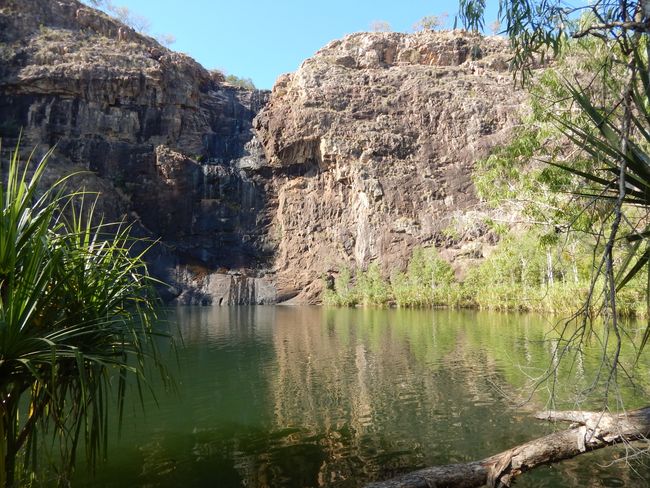
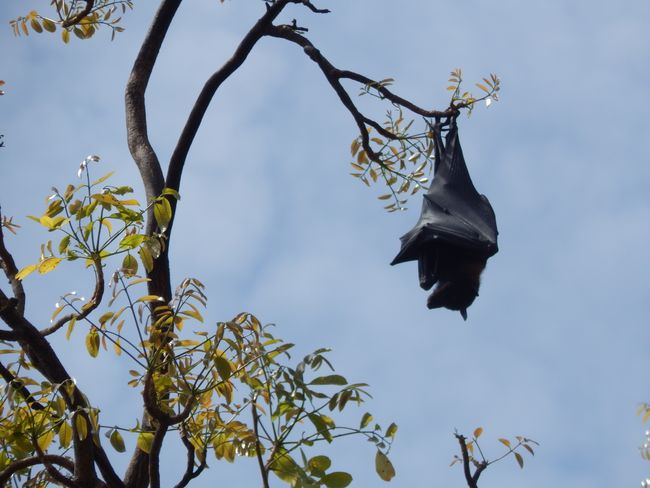
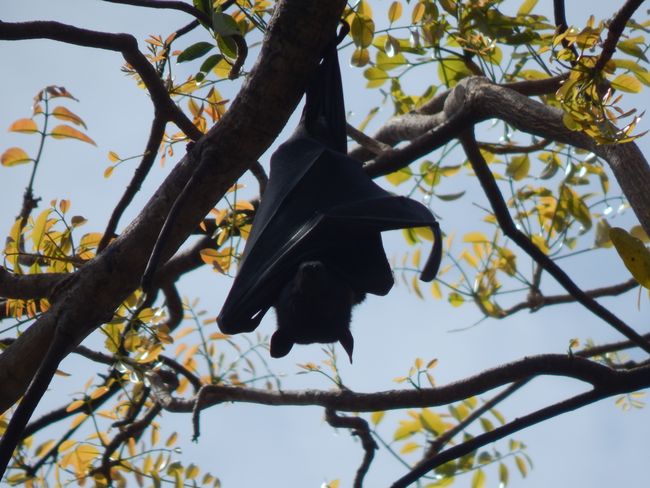
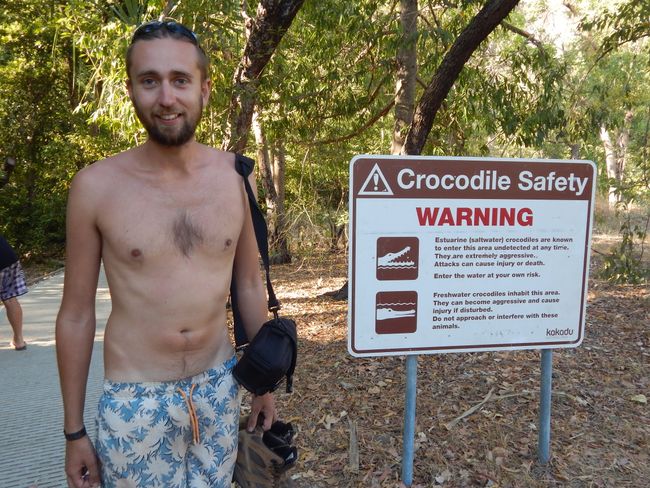
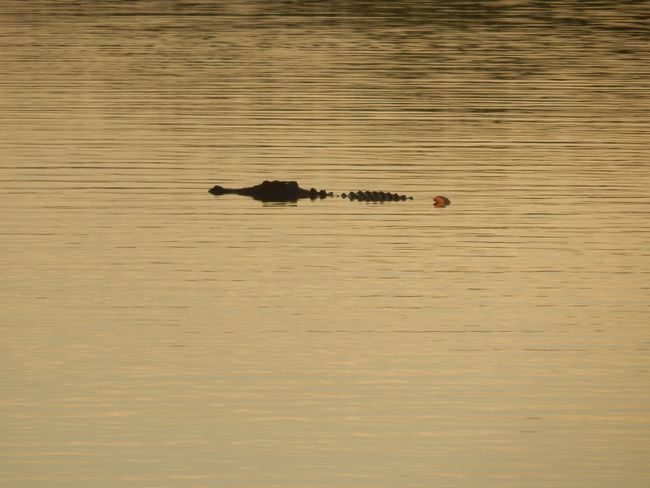
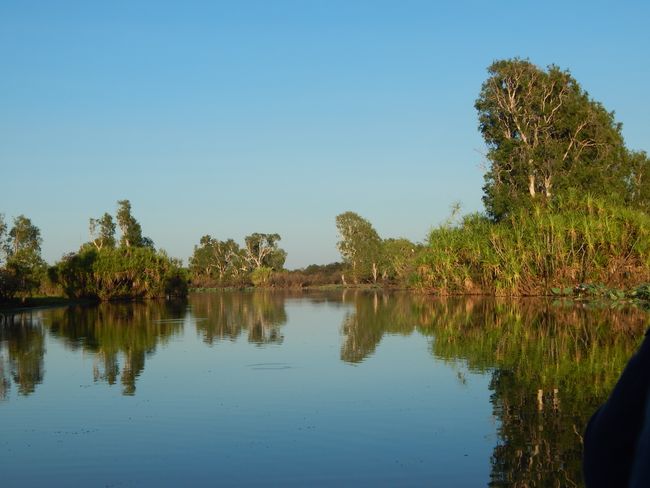
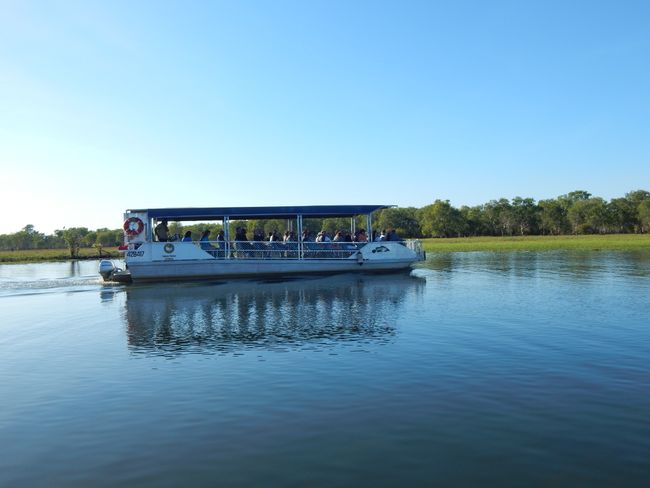
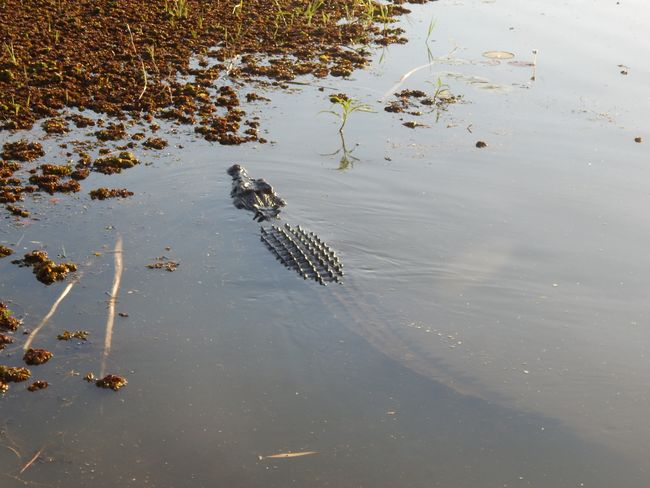
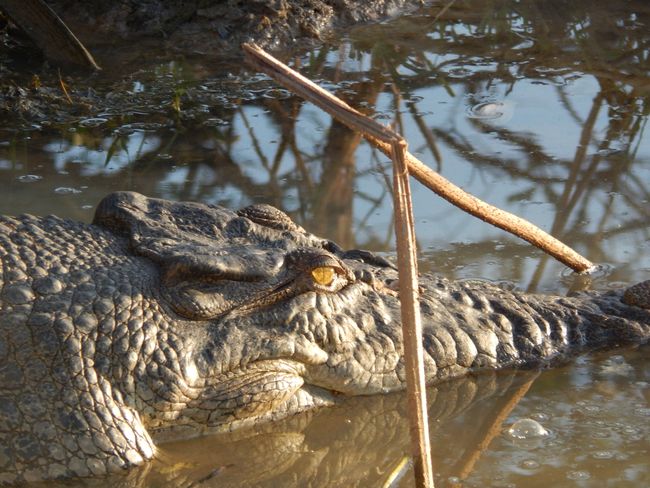
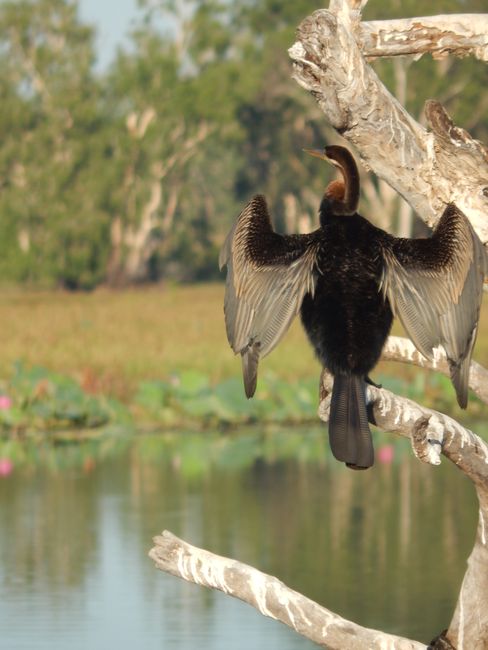
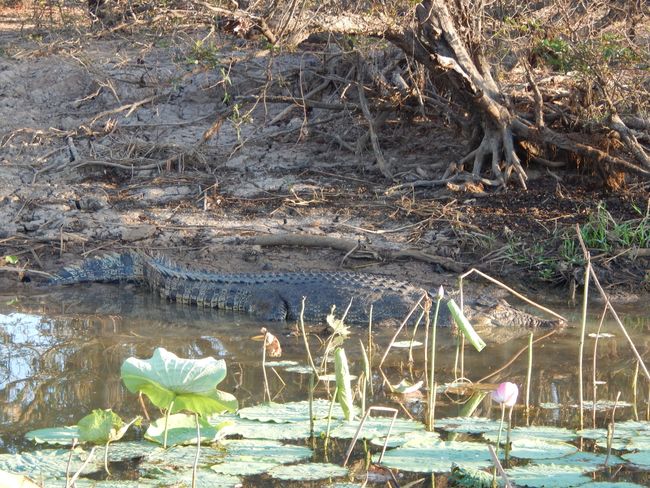
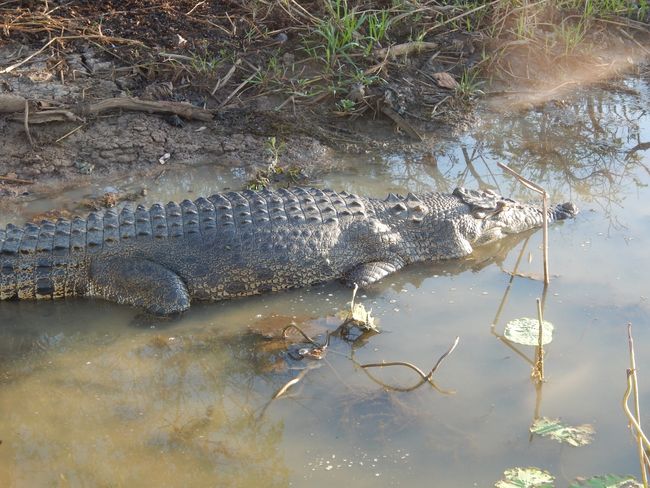
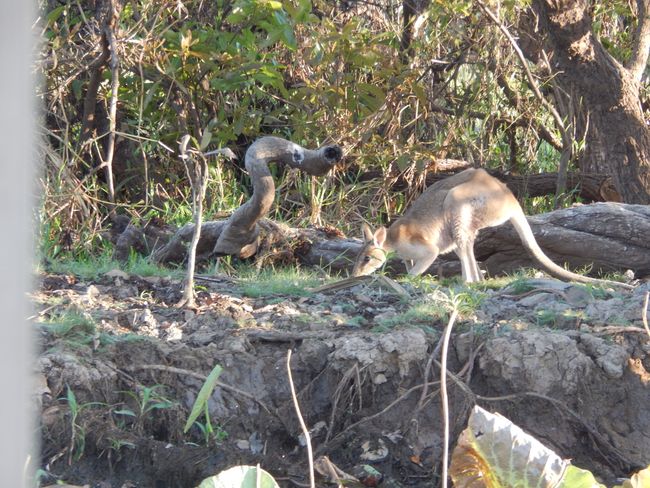
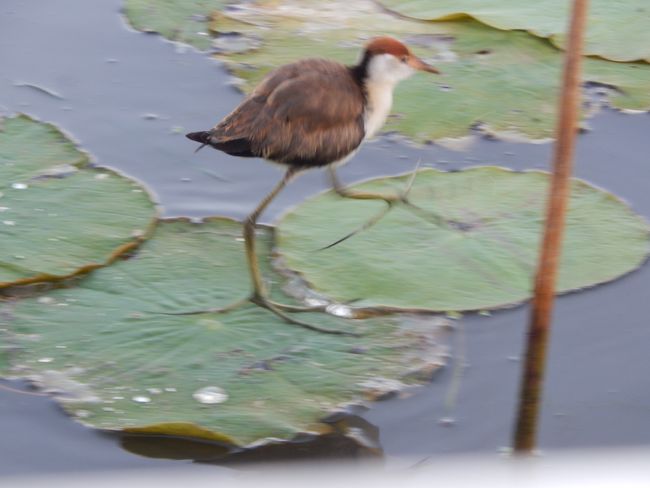
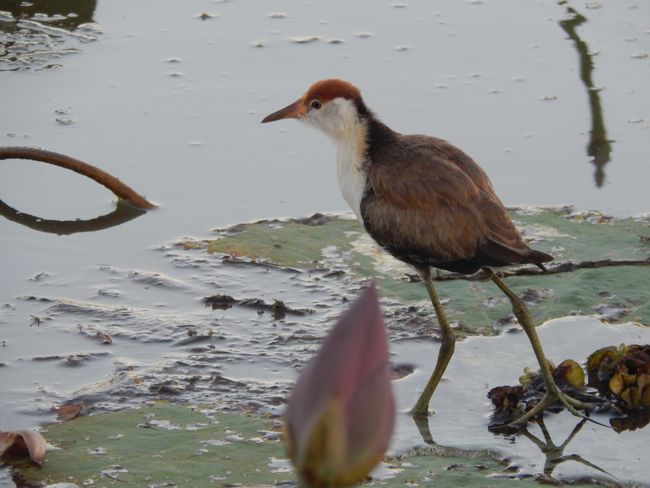
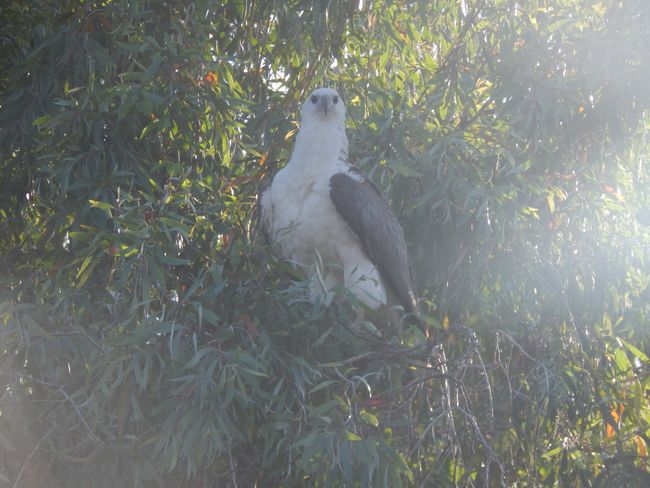
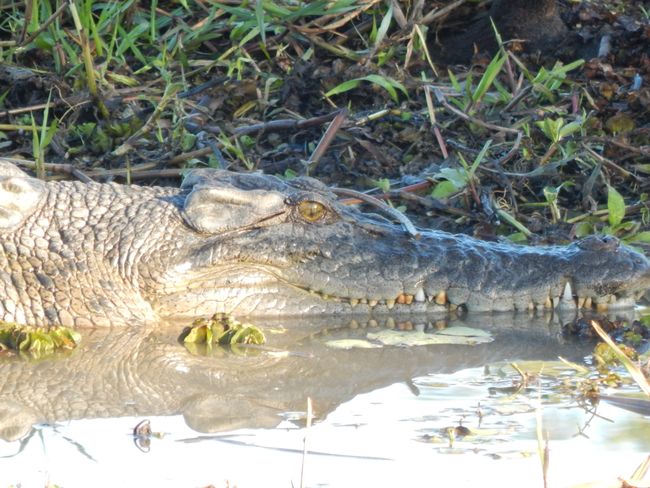
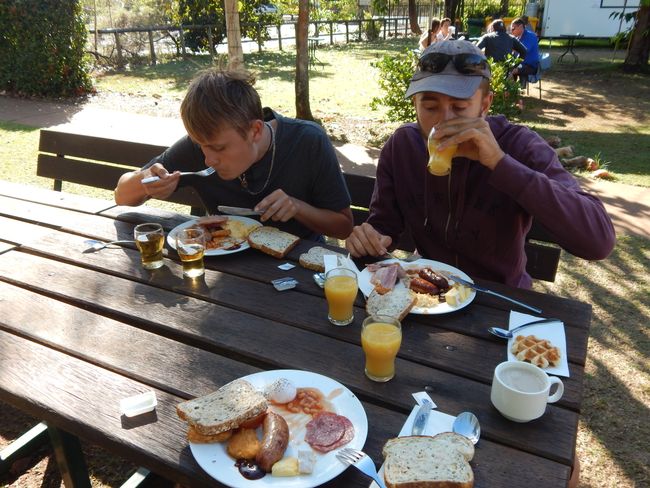
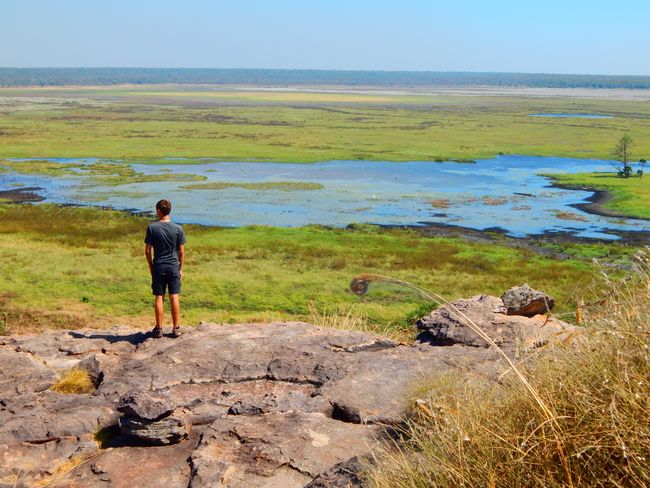
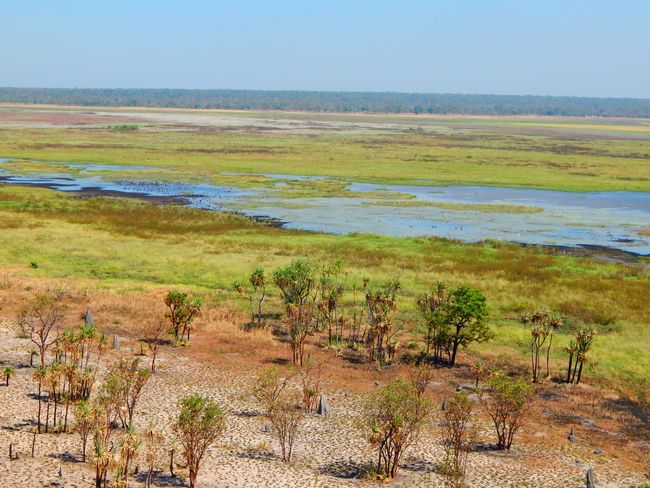
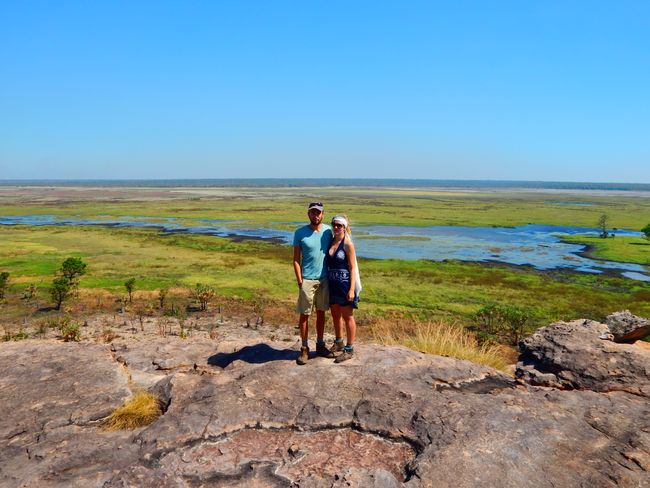
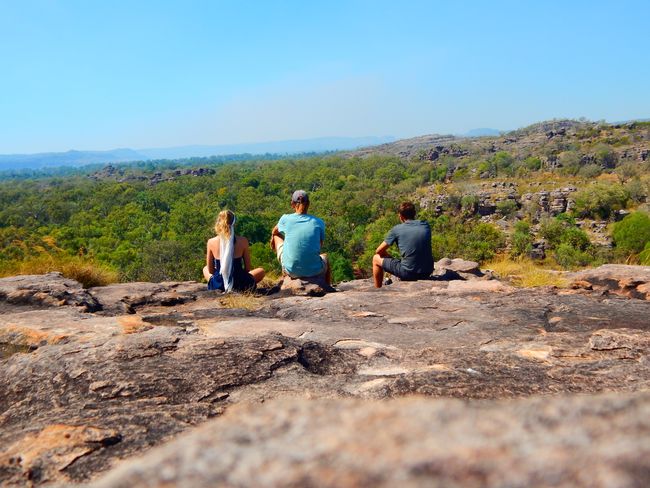
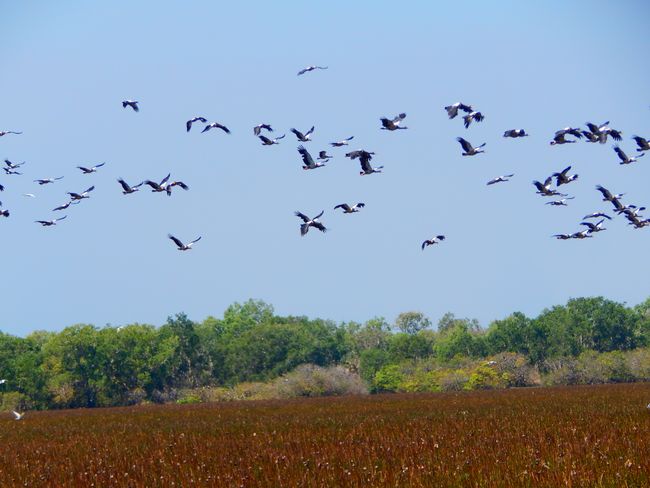
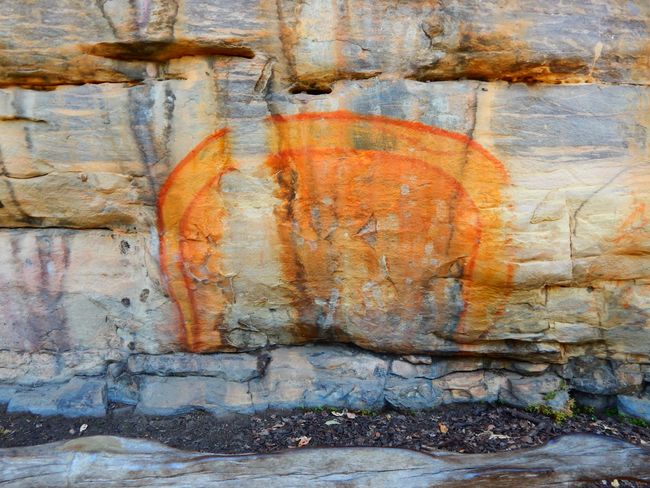
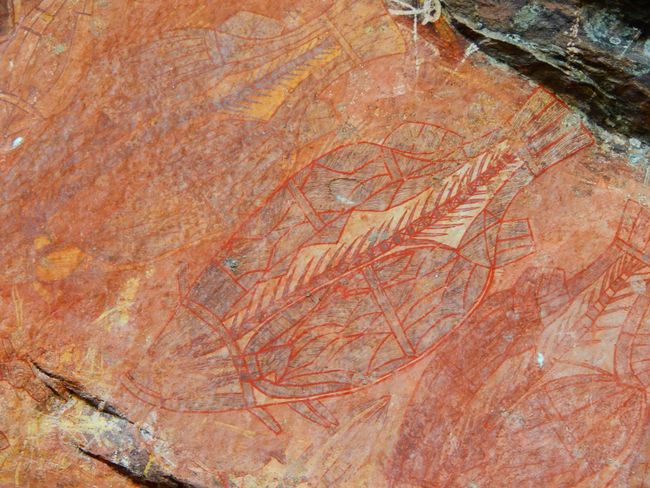
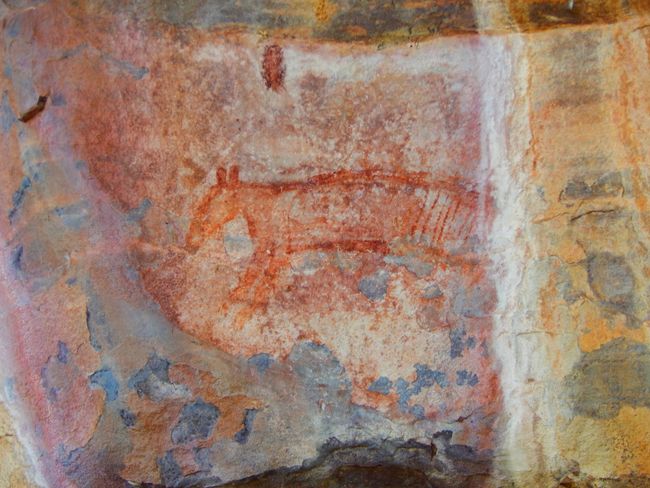
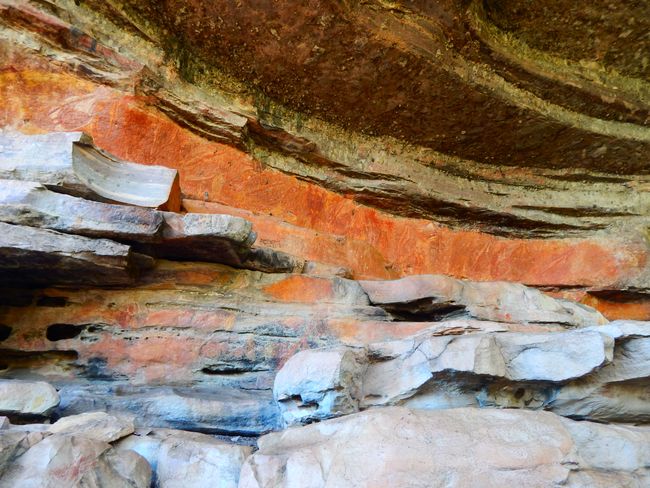
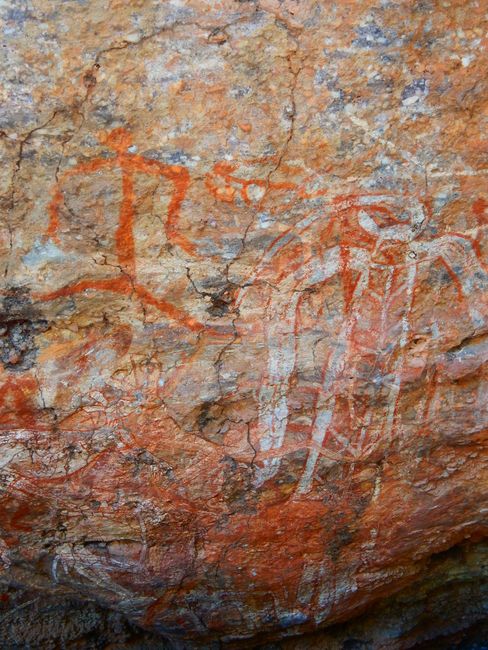
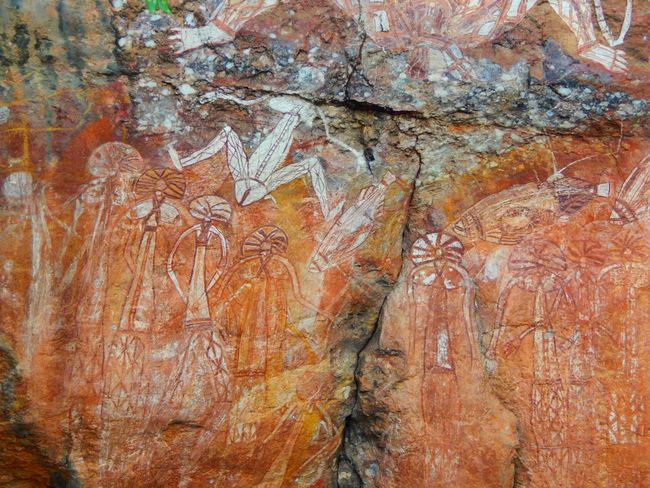
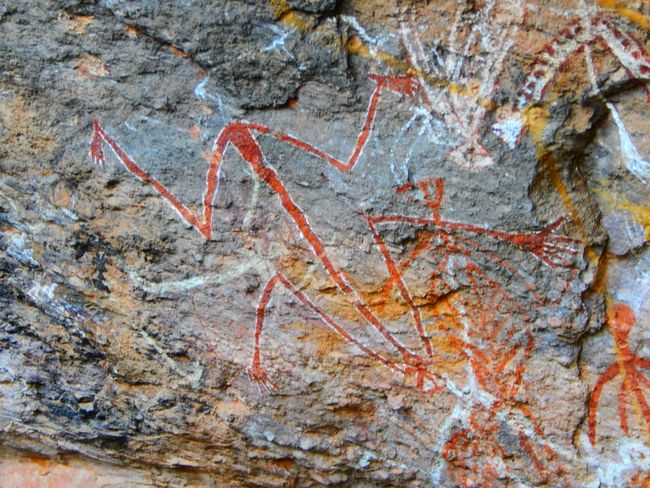
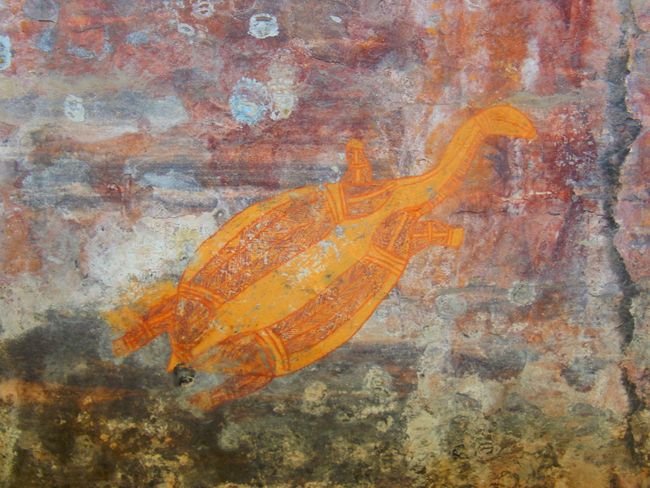
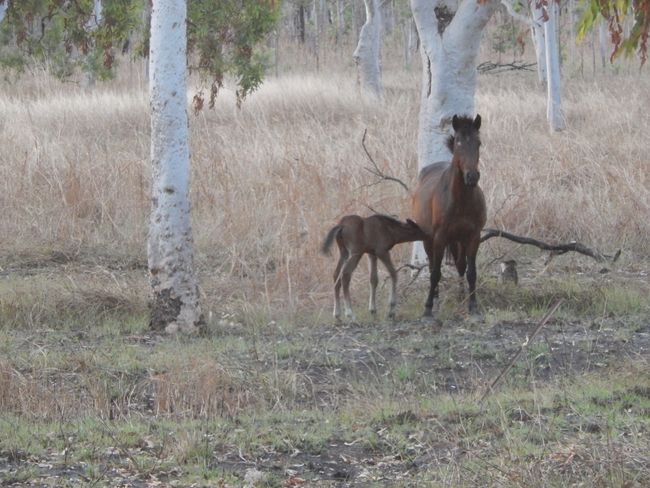
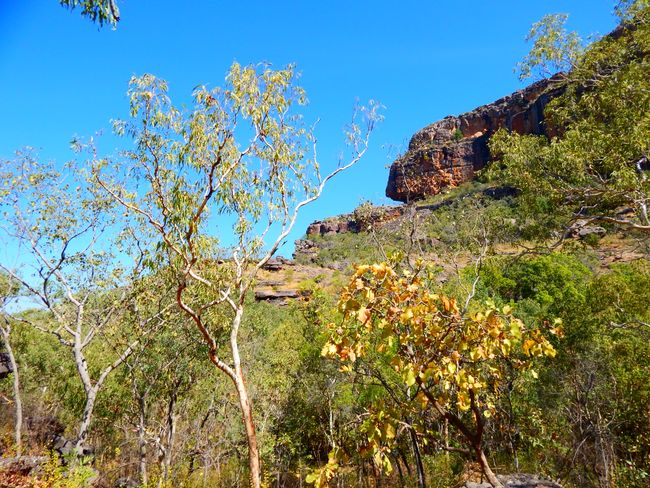
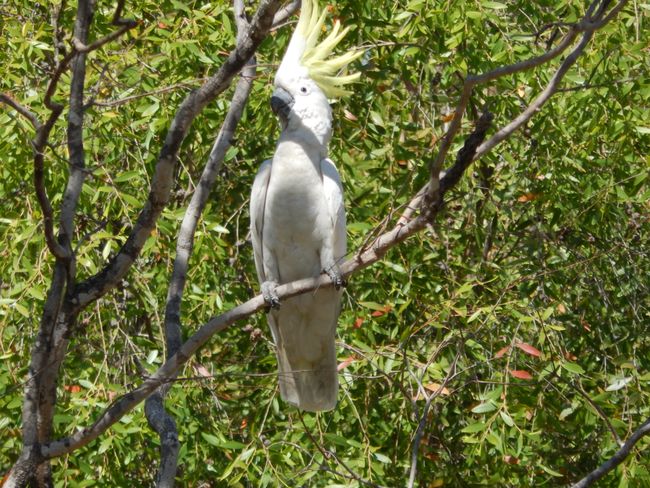
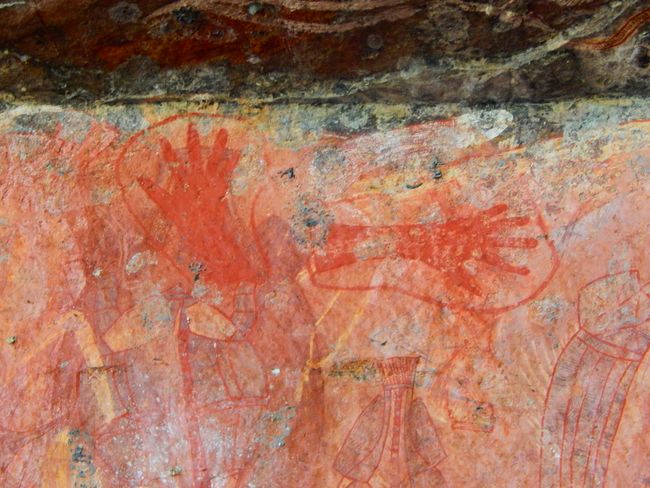
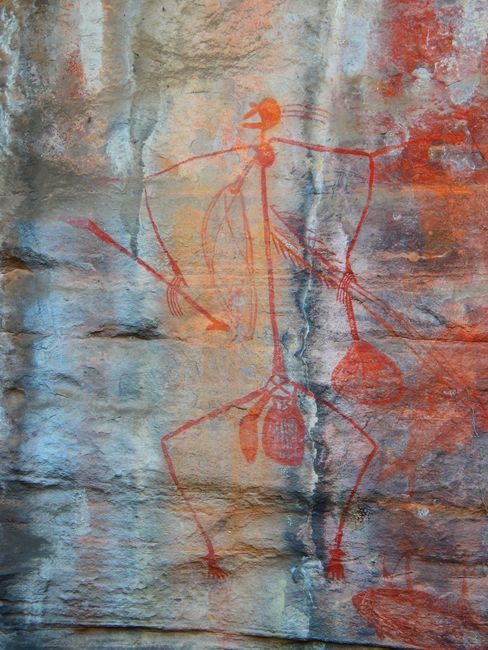
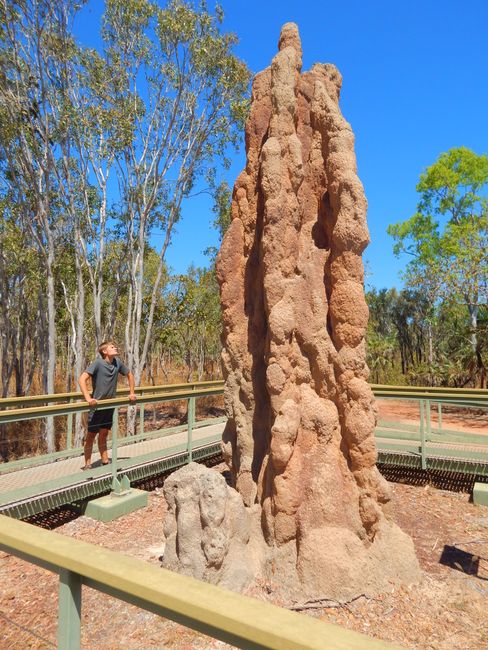
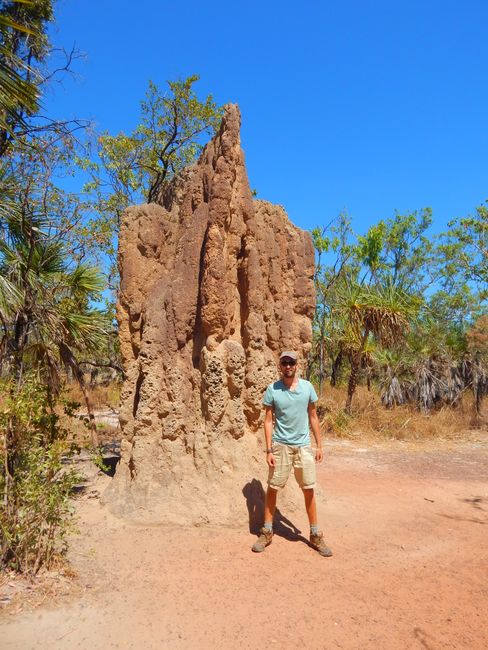
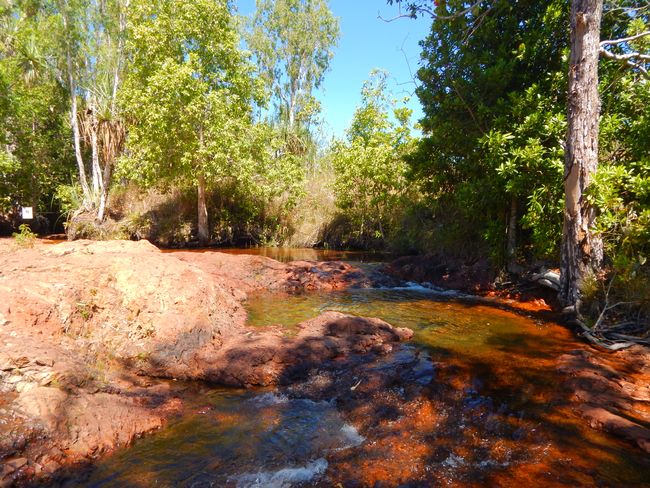
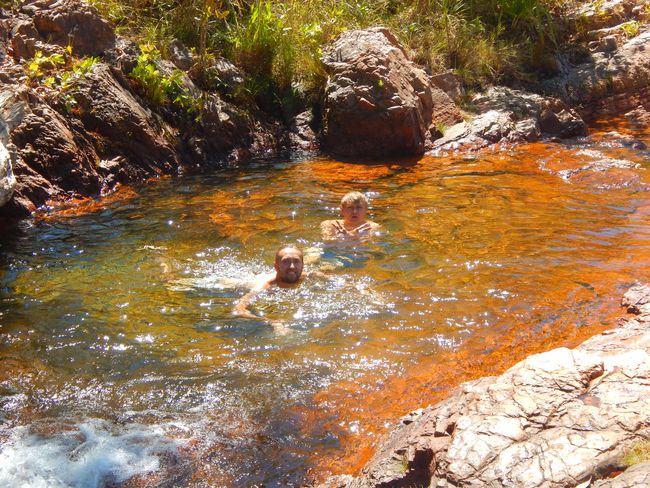
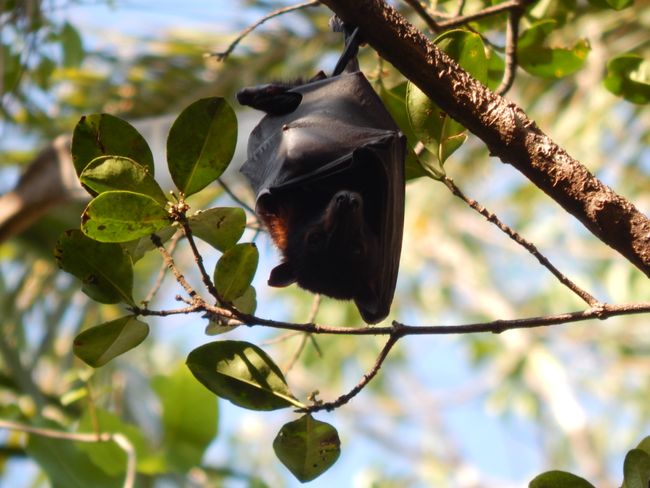
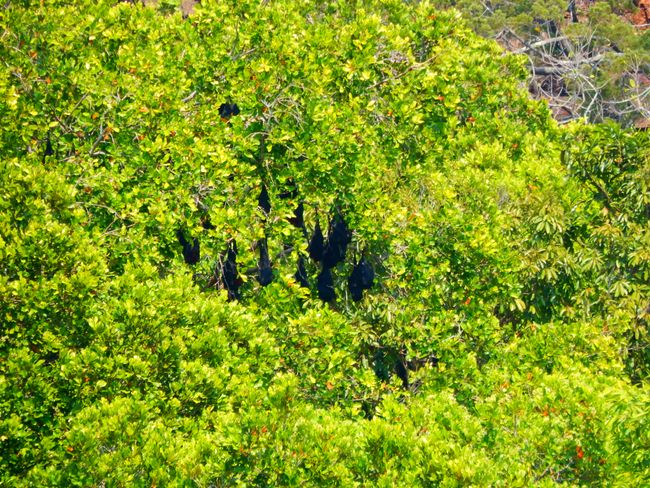
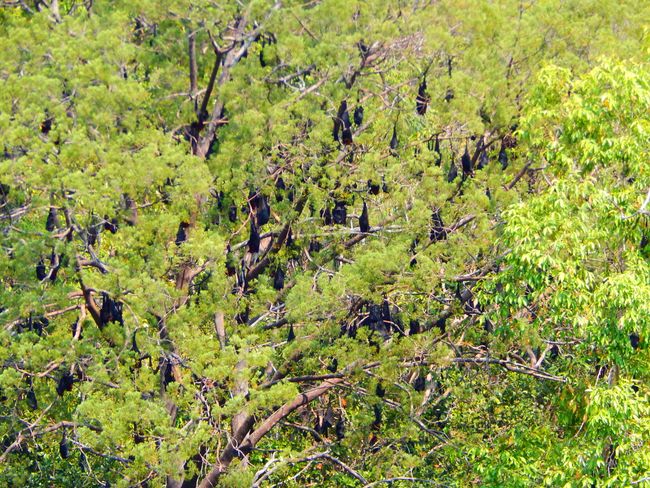
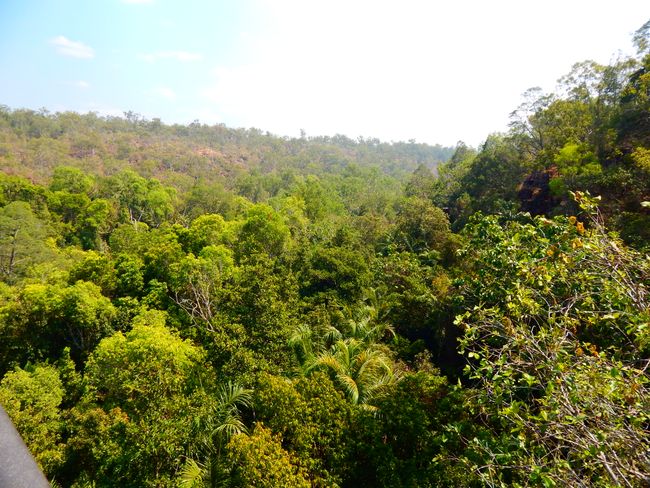
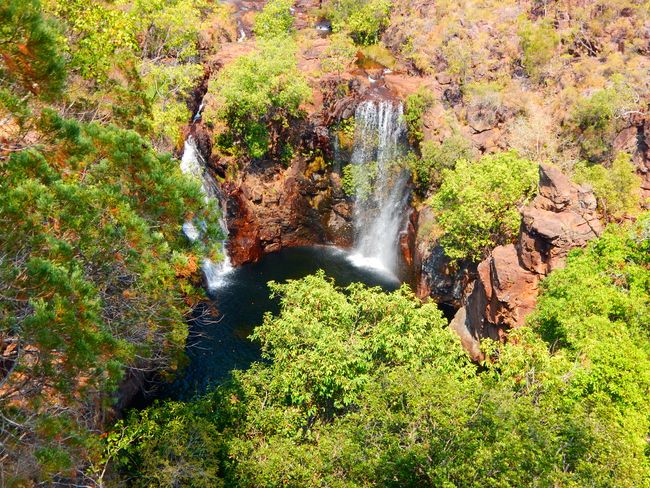
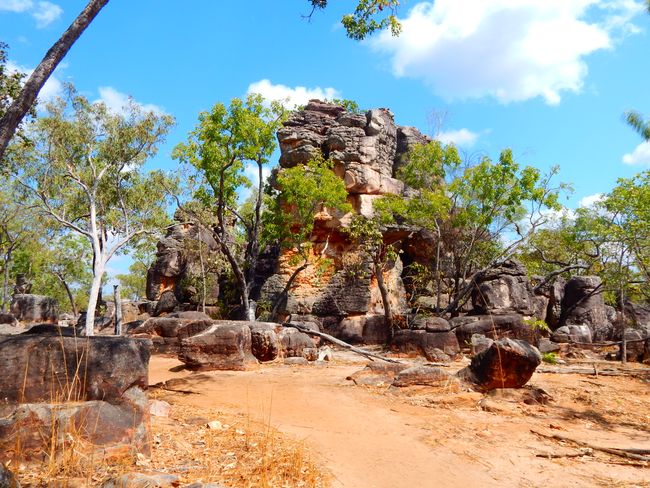
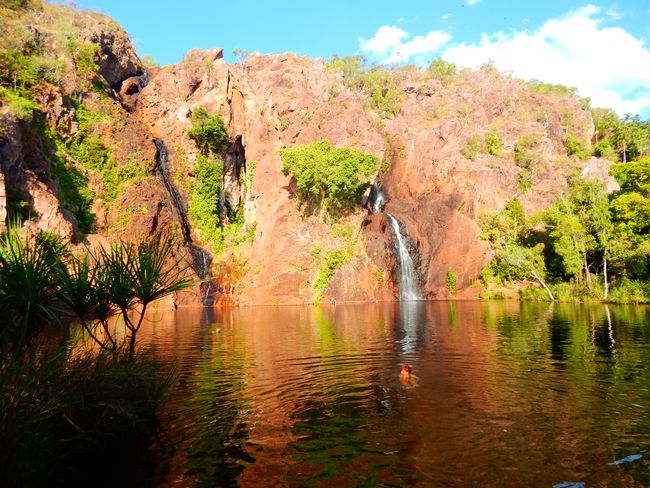
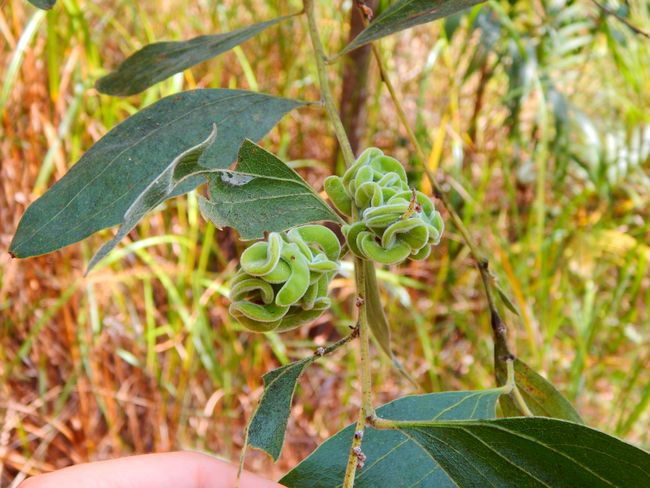
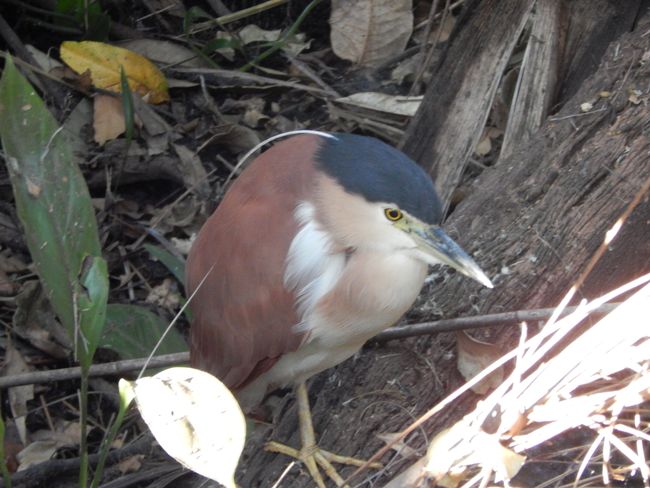
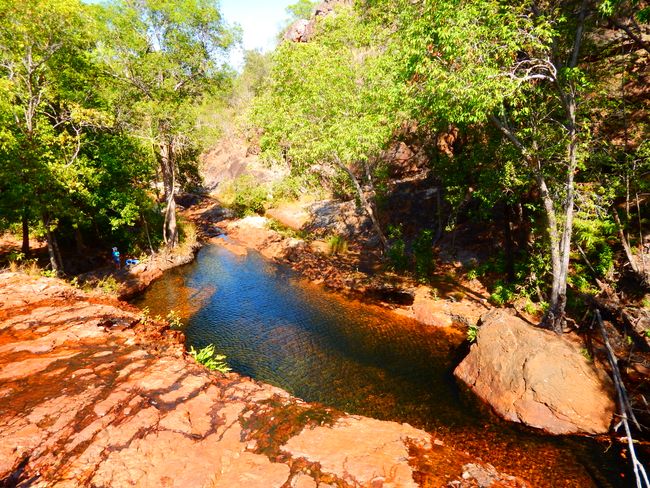
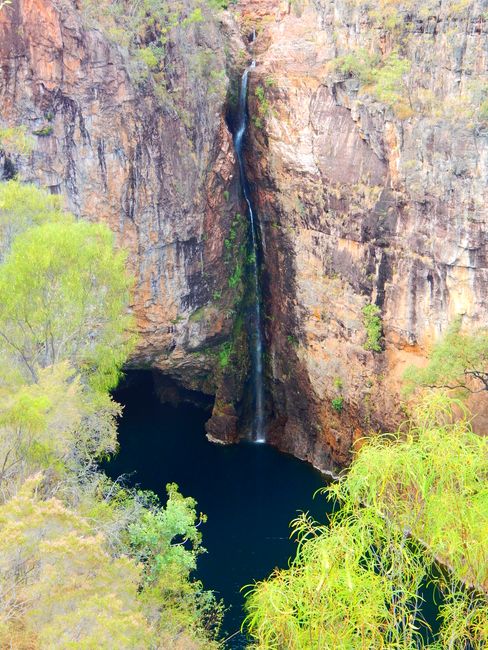
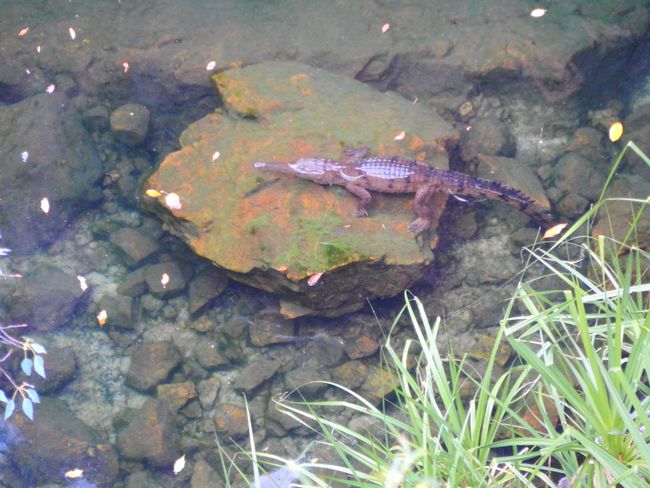
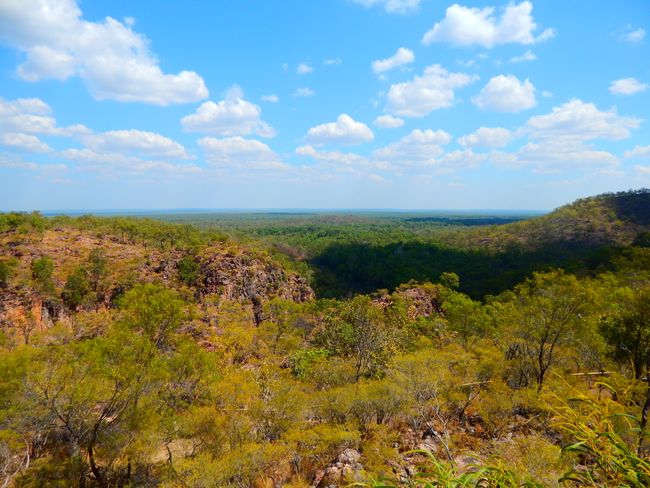
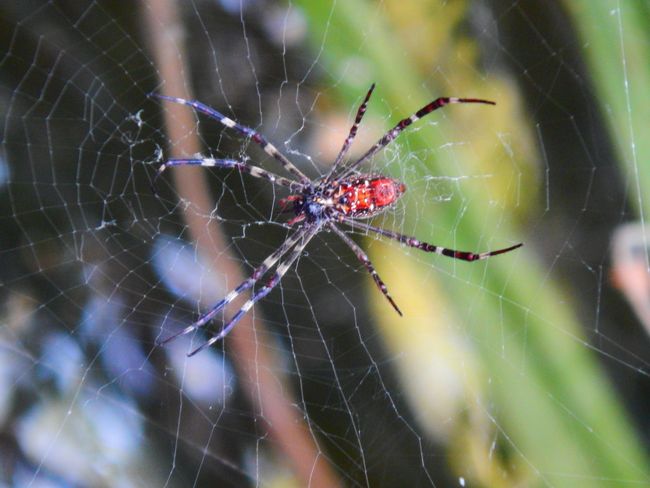
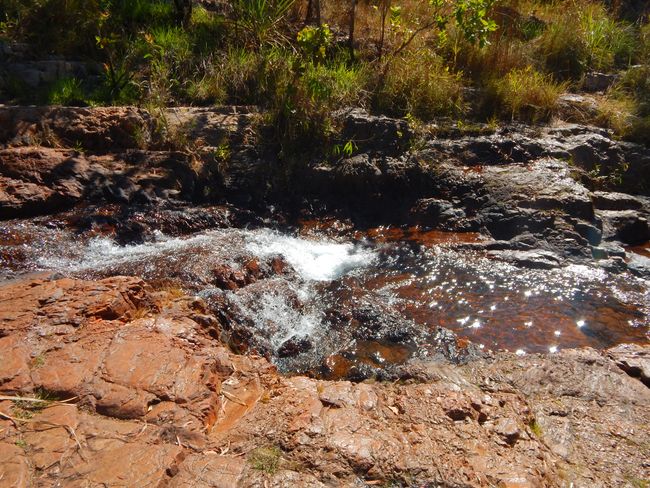
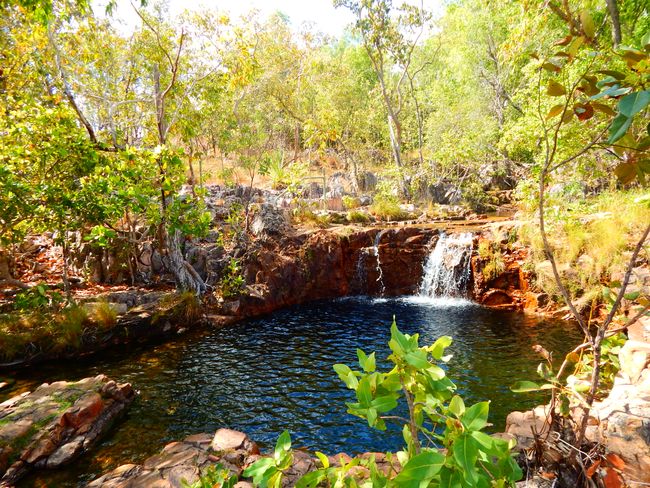
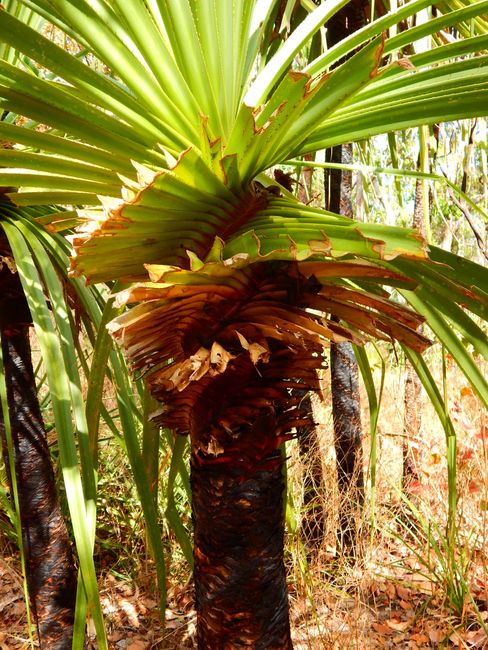
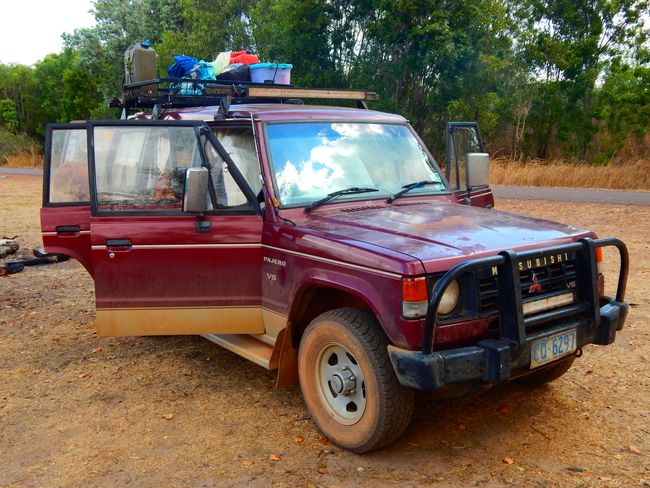
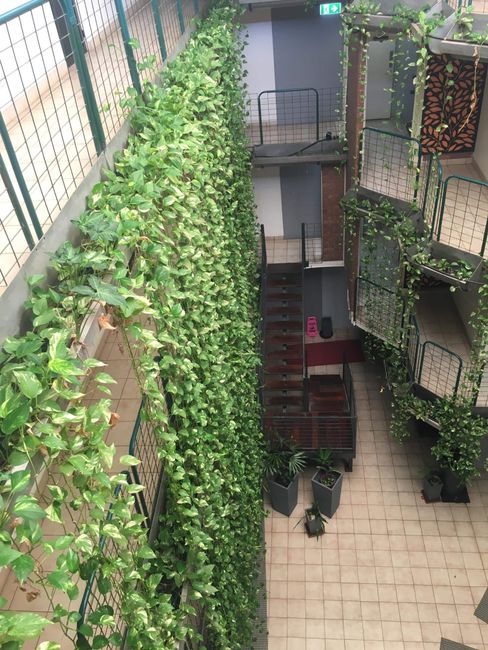
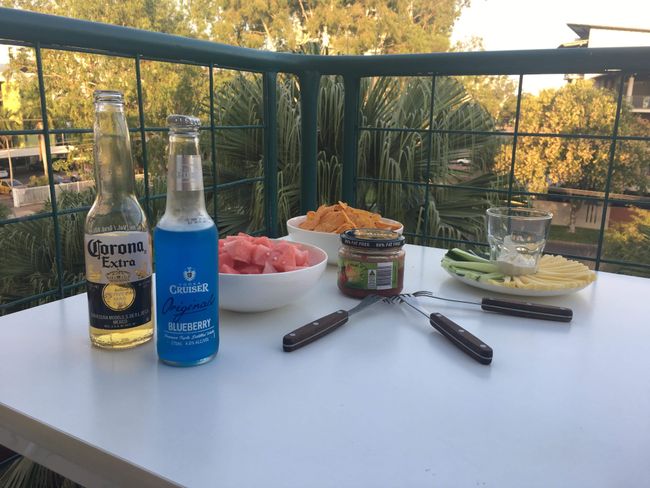
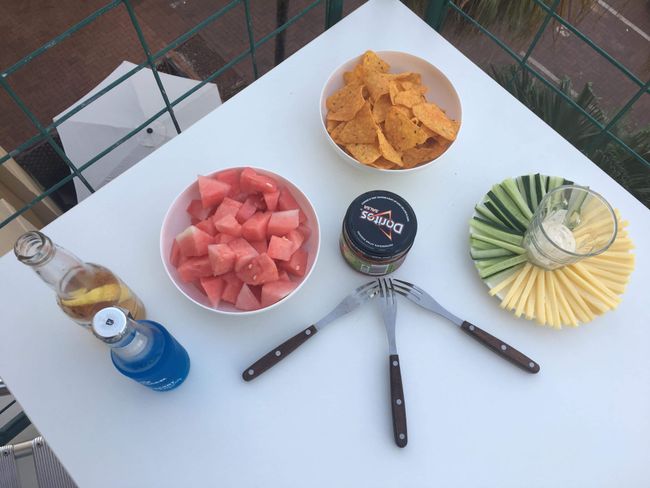
Abonner på nyhedsbrev
Perth
Perth is the largest city in Western Australia. With nearly two million inhabitants, Perth is one of the major cities on the continent. We have rented an apartment for a few nights where Flo's little brother Pierre can settle in. We immediately feel the few degrees Celsius that we have gained since Frankland River. The city is huge and the many people keep us on our toes. It's noisy and the four-lane highway right outside our balcony reminds us where we are. Pierre doesn't seem to mind, he sleeps enviously long and well on his first night in a faraway place. We let ourselves be carried away by the flow of the city and enjoy all the advantages that Perth has to offer. We eat very delicious pizza and have quieter days, sleeping long in the morning and walking through the park in the afternoon. Then our road trip is supposed to start. We plan to drive about 5,000 kilometers across Western Australia to Darwin in the Northern Territory. The three of us in our Mitsubishi Pajero, our roof rack is full, the gas canister and water are filled up, and we just have enough space for all three of us to sit. Over time, our packing techniques improve and in the end we can actually be called professional car packers.
Rottnest Island
Rottnest Island is a small island off the coast of Perth. We take a passenger ferry that takes us to the island in half an hour. Rottnest Island is known for its inhabitants, the quokkas. Shortly after we disembark, we find the first quokkas, smiling and curious. They are no longer wild animals, they beg for food and are unimpressed by us humans. We walk halfway around the island, along the beach and over land, past salt lakes, over small hills, and to three different lighthouses. 50 years ago, there was a serious shipwreck, which is why Rottnest Island now has three lighthouses. After Tasmania, the island seems quite unspectacular. The landscape is beautiful but not outstanding, the quokkas are very cute and save our day. In the evening, we take the ferry back and leave Perth to drive to our first free camp.Yanchep National Park
In Yanchep National Park, we spend a day. We observe koalas hanging asleep in the trees. They look so relaxed and content. They sit high up in the branches and calmly look down on us. We take a short walk around the swampy lake and enjoy the peace and the chirping of the many different birds.The Pinnacles
About 400 kilometers north of Perth, you will find the Pinnacles Desert. It's the first time it's really hot. The sun is relentlessly beating down on us and there are no trees around to provide shade. Yellow sand, an endless blue sky, and yellow limestone pillars rise from the ground. Small or large, thick or long, these are the so-called Pinnacles. They were formed thousands of years ago. Back then, there was no desert here, there must have been a forest, and the Pinnacles are where the tree roots were. Over many years, lime accumulated around the roots and the trees died, the desert formed, and thousands of these limestone pillars grew out of the ground. The Pinnacles Desert has impressed me and left me in awe. I have experienced this special place quietly and steadily. Unfortunately, there were many people there who detracted from the tranquility and uniqueness. We will often find that in Australia, everyone is on vacation all the time and you are rarely alone. In the evening, we drive to the beach and are alone right on the shore. We play cards and watch the sun sink into the sea.Principality of Hutt River
From the sea, we drive further inland. The Principality of Hutt River is a village with 30 inhabitants. They are independent and not part of Australia. They have their own currency, the "Hutt River Dollar", which is not exchangeable. Prince Graeme of Hutt River welcomes us in his town hall. He tells us the story of his village and invites us to spend a night at the campground. In the town hall, he has many different banknotes from all over the world and several passports. The whole village seems deserted. We see one other man, but no one else. We also learn that the entire electricity supply of this village comes from a gasoline generator. (Later on our journey north, we will see more villages where this is still the case. We can see how dependent all of Australia is on fuel.) The Principality of Hutt River is a funny idea, and somehow I had the feeling that adult children are playing "prince" here. I often wasn't sure how much irony and how much seriousness there was in it. But we had a good night, and in itself, it is a good thing to be independent.“A nation remains a nation, no matter how small it is.”
Kalbarri National Park
We were only in Kalbarri for a very short time. We took an afternoon to visit "Nature's Window", a window formed from rocks. We walk along steep cliffs and admire a huge gorge opening up in front of us. Trees grow all around and a river runs through the gorge. It's beautiful, and we regret not having enough time to walk all the way through the gorge.Monkey Mia Reserve
The Monkey Mia Reserve is a World Heritage Site located at the end of a peninsula, about 800 kilometers north of Perth. It is world-famous for the Indo-Pacific bottlenose dolphins, which come to the beach up to three times a day to visit humans. This ritual has been going on for the third generation now. Up to five female dolphins from two families receive a small amount of fish. The park and wildlife employees follow a strict feeding plan that was established 50 years ago. At that time, little attention was paid to how much fish was given to the dolphins, and many young ones did not learn how to hunt and died. One morning, around 10 o'clock, we stood on this beach and waited. A small number of people waited with us, excited whether they would also come this morning. After about half an hour, we could see the dorsal fins rising from the water. Most of the herd stayed a good distance from the beach and played together in the water. Slowly but purposefully, two dolphins finally came to us on the beach. We stood with our feet in the water, and the two dolphins were about a meter away from us. These big, beautiful, intelligent animals. They sprayed water into the air and looked at us with interest. Then two people from the group were chosen to feed them with two fish each. I have never seen a dolphin so close, and they were very funny and lively dolphins. They played with the lady who stood deeper in the water and told us something about the two of them. It was definitely a beautiful morning. At noon, we slowly drove back the same way and stopped at the other places that make this peninsula a World Heritage Site. At the so-called "Eagle Bluff," we walked a short distance on the coast high above. There is protected and unique marine life here. Unfortunately, we couldn't see too many fish from up there.
In the evening, we spend a short time at "Shell Beach." It's a bit too cold to go swimming; we actually caught the only day that was cloudy. The entire beach is covered in small white shells. I felt so huge and heavy as we walked over the shells. The beach stretches 70 kilometers along the east coast of the peninsula, and millions of shells that reach ten meters deep cover this unique place.
The last point on our list for this day is the "Stromalites," the living fossils. We drive a bit further and then walk on wooden walkways over shallow water where the living fossils are on the rocks. It sounds much more exciting than it actually was. Secretly, I imagined huge fossils standing there, laughing and full of life energy, and in reality, I only saw rocks in the water covered with moss. But hey: I saw living fossils!
Shire of Carnarvon
In the county of Carnarvon, a small town with about 4,550 inhabitants, we stay a few nights at a caravan park. There is a pool, billiards, and table tennis. We enjoy not driving so much and have a small party for Pierre's 18th birthday. There is cake and gifts from Australia and France. By now, we have reached temperatures of 25 to 30 degrees Celsius daily, and at night, it cools down to comfortable sleeping temperatures. There are hardly any clouds in the sky, and the sun sets around 5:30-6:00 pm.Quobba Blowholes
The Quobba blowholes are located about 1,000 kilometers north of Perth. Strong waves crash against the rocks and caves of the coast, and water is thrown up in an impressive height. We admire this phenomenon for a while and let the power of the ocean affect us. Later on, we discover a huge monitor lizard between the rocks. It stands frozen in the shade of the stones and does not move. It is about one to two meters long and holds its head majestically high. A beautiful, elegant animal! Just around the corner, there is a small bay where the waves have hardly any power left. We jump into the water and try out our snorkeling gear for the first time. A beautiful underwater world with many fish opens up in front of us. Pierre's eyes sparkle, he loves water, fish, and everything that goes with it. I only stay in the water for a short while because initially, all the fish seemed a bit daunting to me, and it was still a bit too cold for me to be in the water.Coral Bay
In Coral Bay, there are many corals to see. We have to swim out far into the sea to see the colorful colors. There are also a few fish to see. I feel more comfortable in deeper waters. The corals are about two meters below us, so the fish are not so close. Later, Flo and Pierre swim out as far as they can on their own. They tell me about huge, even more beautiful, and even more colorful corals that seem to extend infinitely towards the horizon.Cape Range National Park
The Cape Range National Park is known for its beaches, the abundant marine life, and a few gorges on land. We stay three days to see everything. We visit Osprey Bay, where there are fewer corals but many fish. They are colorful and some of them quite big. Suddenly, I hear Pierre shouting "turtle" over the water in French! So off we go, we stare in amazement at a huge sea turtle calmly and unconcernedly eating algae. Then suddenly it starts swimming, it glides up and takes a short breath of air before sinking back to the ground and contentedly looking for something edible. I think that was one of the most beautiful things I have ever seen. The water was clear, and the deep tranquility that the turtle radiated could have filled the entire ocean! The next day, we visit Oyster Stack. It is cloudy and therefore unfortunately a bit chilly, but that makes the water even clearer. At Oyster Stack, the water surface is just above the coral. Snorkeling is only allowed during high tide; during low tide, the many corals will quickly shatter. So we swim very close to the corals and see thousands of fish around us. The Oyster Stack was definitely the highlight of the Cape Range National Park for us, so full of life and different corals, and so close, which is rare. Flo discovers an octopus, which immediately freezes when they see each other and changes its red color to white, like the corals around it. Later, we find a moray eel, which we respect a bit because we weren't sure if it might be a sea snake. In the next two days, we visit Turquoise Bay, where you can see larger fish, which we don't have, and Lakeside. Both beaches were very beautiful, but there wasn't as much to see underwater anymore.Darwin
Finally, after about 5,000 kilometers, we have arrived in Darwin! We have rented a small apartment again where we have loved the air conditioning. By now, we have reached temperatures of 35 to 40 degrees Celsius daily, and in some nights, it even cools down to around 20 degrees. It was almost impossible to sleep in the car. We can buy fresh groceries again and enjoy our drinks cold. We went to the Sunset Market together, a nice market with lots of food, a few clothes, and other trinkets. We watched the sun set (now around 7 pm!!) and applauded along with many others when it finally sank into the sea. Then, as promised, we took Pierre to the casino, and he won $80 right away. We had a final aperitif together, and finally, we had to take him back to the airport. The last few weeks have been very intense and yet so fast. We had a lot of fun and an unforgettable road trip through Western Australia.Abonner på nyhedsbrev
Svar
